SIZZLING SUMMER ADVENTURES AWAIT


CULTURE diet
EMPOWERING KIDS TO FIGHT BACK
the BIG SQUEEZE
HOW HUGS & KISSES SHAPE A CHILD’S LIFE

SIZZLING SUMMER ADVENTURES AWAIT


CULTURE diet
EMPOWERING KIDS TO FIGHT BACK
the BIG SQUEEZE
HOW HUGS & KISSES SHAPE A CHILD’S LIFE
When your child needs specialty care, trust Joe DiMaggio Children’s Hospital. With more than 80 pediatric specialties/services and 20 locations in 8 communities, we’re close to home when South Florida children need us.
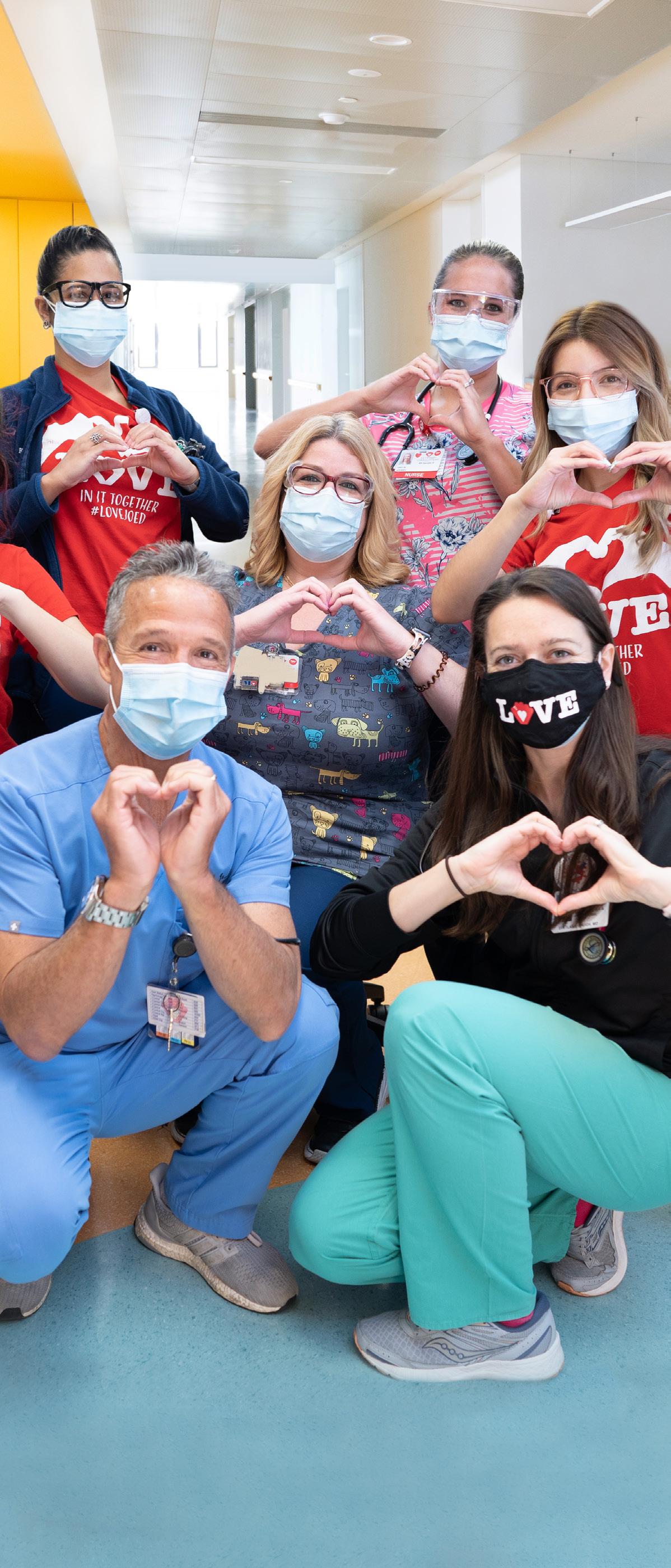
SPECIALTIES AND SERVICES
y 3 Pediatric Emergency Departments, including one of South Florida’s only pediatric trauma centers
y 3 Neonatal Intensive Care Units (NICU), including one Level III
y Cancer Care
y Ear, Nose and Throat
y General Surgery
y Heart and Vascular, including heart transplant
y Neurology/Neurosurgery
y Orthopedics/Sports Medicine
y Physical Therapy/Rehabilitation
y Pulmonology
LOCATIONS
Aventura
Boca Raton
Coral Springs
Hollywood
Miramar
Pembroke Pines
Wellington
Weston
Trust us to bring pediatric expertise, world renowned patient- and family-centered care and child-friendly settings — close to home.
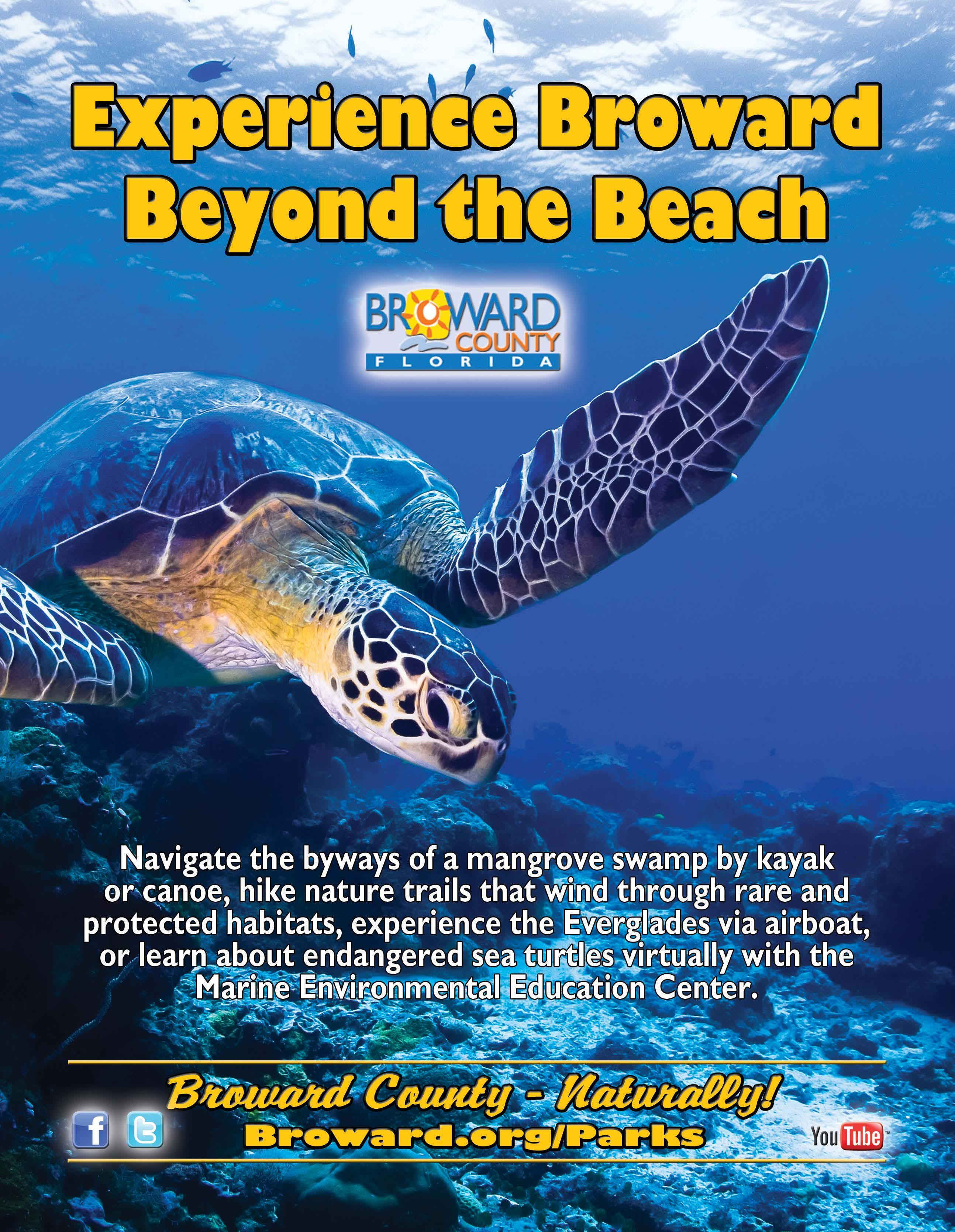
Summer programs are preparing to welcome happy campers.

Our special advertising section highlights outstanding options for summer fun.
Our integrated maternity program is designed to take care of you and your baby before, during, and even after your pregnancy. Committed to following your birth plan, but ready with one of the most advanced newborn ICU programs in the country should your baby ever need it. Stay at one of our spa-like Little Miracles maternity suites. Let us focus on your every need, so you can simply focus on your little one.
We are proud to be designated a Baby-Friendly Hospital for giving mothers the skills and support needed to feed and bond with their child.

Jackson Memorial Hospital
Jackson North Medical Center
Jackson South Medical Center
Designated 2017 – 2022
For a tour or to find a physician, call 305-585-4MOM or visit JacksonMaternity.org
For more information, visit cscbroward.org/safeswim

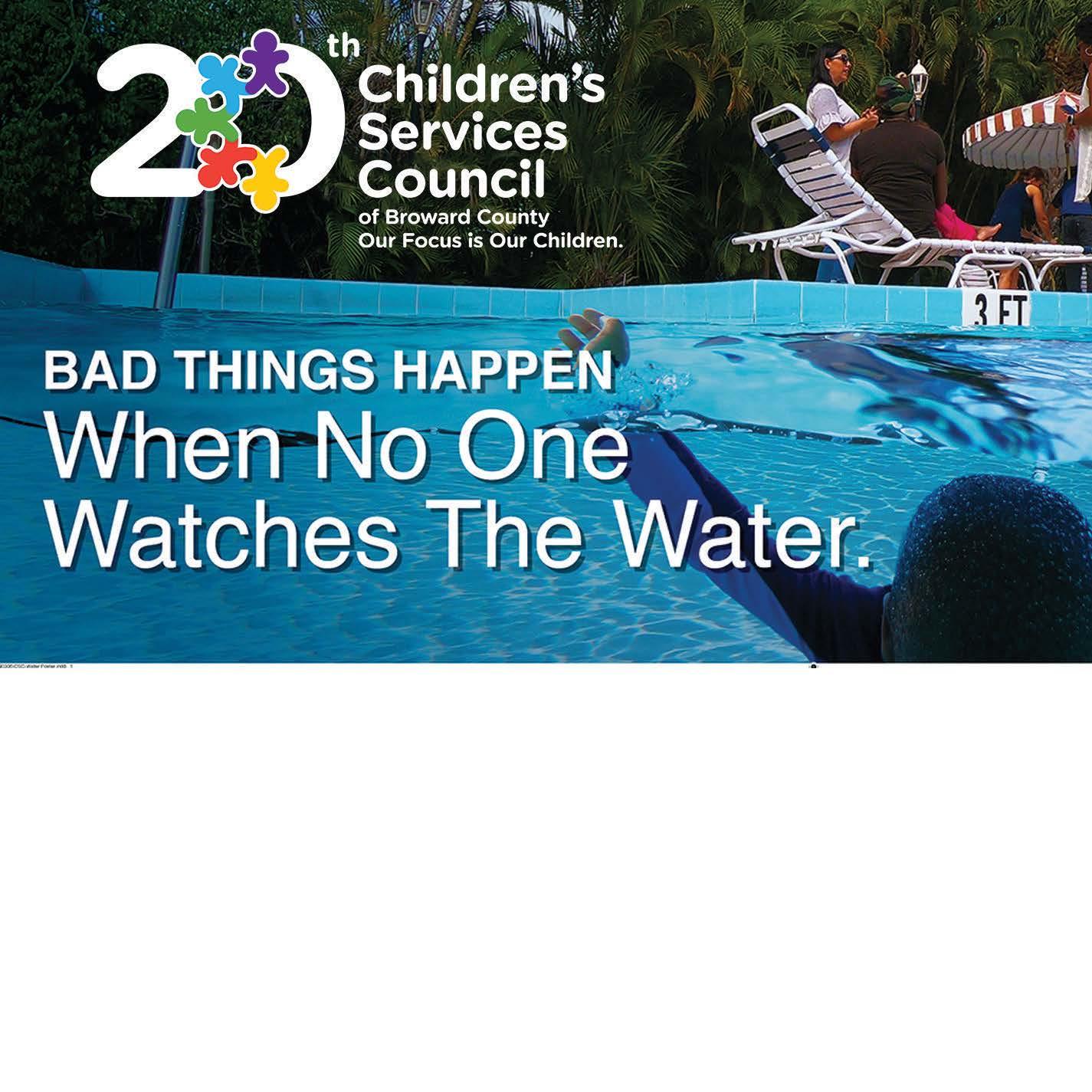
Our mission is to enrich family life in South Florida by offering the highest quality publication and an unparalleled commitment to our readers and our community.
PUBLISHER
Lisa Goodlin
ASSOCIATE PUBLISHER
Stacey Jacques
EXECUTIVE EDITOR
Michelle Liem
ASSISTANT EDITOR
Shannon Pease-Severance
DIGITAL & SOCIAL MEDIA EDITOR
Jennifer Jhon
SENIOR ACCOUNT MANAGERS
Suzy Miguelez • Sheila Ranson
CREATIVE DIRECTOR
Carrie B. Weeks
PRODUCTION ASSISTANTS
Toni Kirkland • Linda Seavey
DIGITAL DEVELOPMENT MANAGER
Tom Gonzales
CONTACT US: 4611 S. University Drive, #224 Davie, FL 33328 Phone (954) 424-7405 info@familylifemediagroup.com

For information on where to find South Florida Family Life, or to become a distributor, call 954-424-7405 or e-mail info@familylifemediagroup.com Comments and suggestions are welcome.
South Florida Family Life is published twelve times per year by Family Life Media Group. It is distributed free of charge throughout South Florida. South Florida Family Life is not responsible for statements made by advertisers or writers. We make every effort to ensure the accuracy of information we print, but cannot be held responsible for any consequences arising from omissions or errors. All photography and letters sent to South Florida Family Life will be treated unconditionally, assigned for publication and copyright purposes and are subject to unrestricted right to edit and comment editorially. Reproduction in whole or in part without permission is forbidden.
Copyright 2021 by Family Life Media Group. All rights reserved.











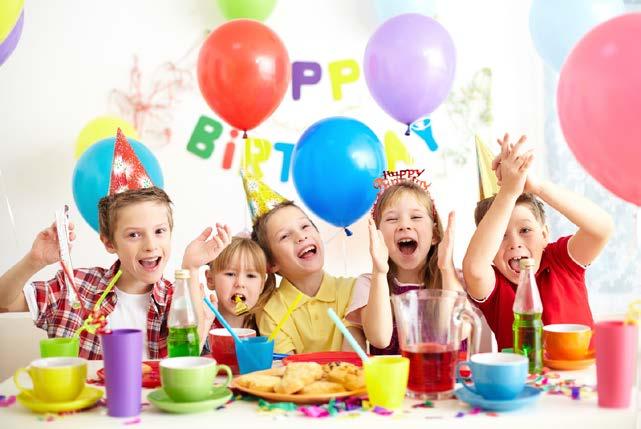
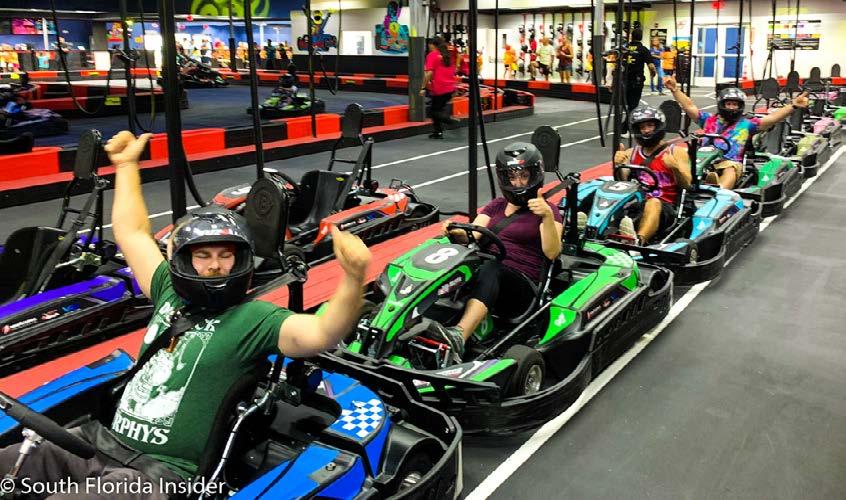
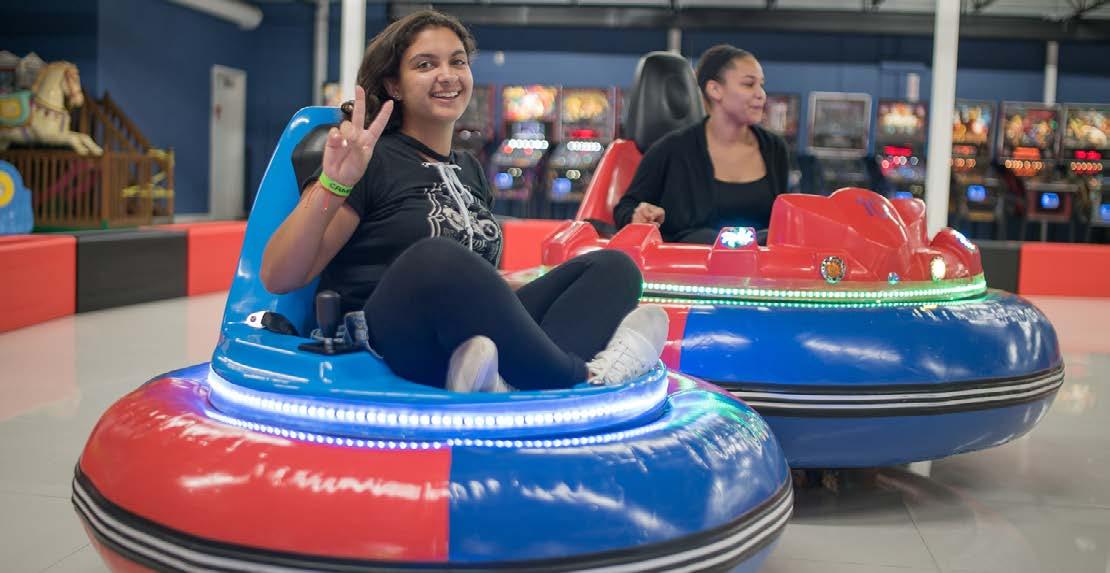

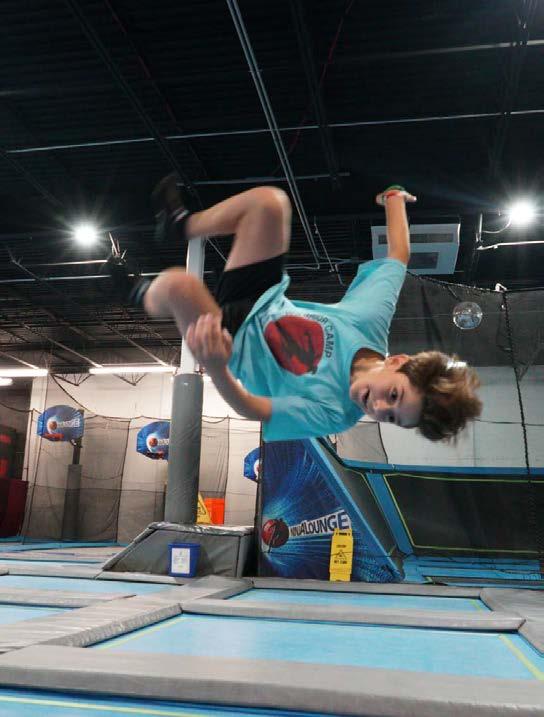
























Kids across South Florida baked and delivered cookies, narrated videos, wrote poems and drew pictures to show love and kindness during the month of February, and their parents took the opportunity to show off those efforts in South Florida Family Life’s Kids 4 Kindness project.
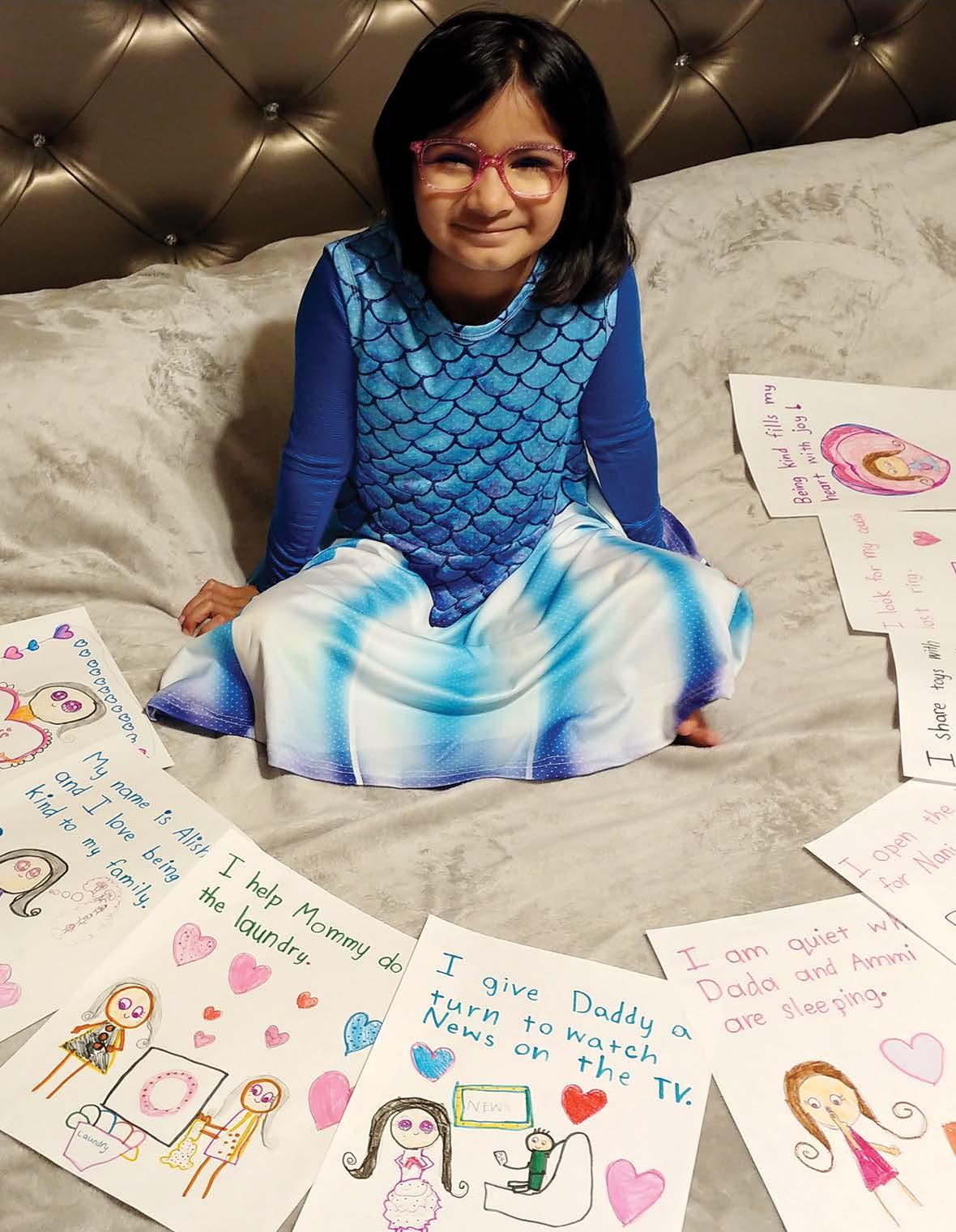
Kids 4 Kindness, presented by Salah Foundation Children’s Hospital at Broward Health, encouraged families to share their acts of kindness as a way to encourage love and unity throughout South Florida. The winners were featured March 13 on South Florida’s PBS Kids, and the magazine plans to highlight the Kids 4 Kindness work in print every month through August.
These Kind Kids also won prizes for their kind acts, such as a family membership to the South Florida Science Center and Aquarium in West Palm Beach, and $50 gift cards to Two Besties Bakery, which specializes in amazing cakes and cookies, and delicious vegan, dairy-free and gluten-free baked goods.
The top Kind Kids were chosen by a panel of judges and by South Florida Family Life readers, who were also able to vote for their favorite Kind Kid in a weeklong campaign.
We’re proud to present our winners for 2021: Cypress Mallott of West Palm Beach, who filmed a Valentine video.
Arshee Khan of Lauderhill, who wrote a poem, “What Is Kindness?”.
Easton and Raelyn Dangler, who baked and delivered Valentine’s cookies.
Alisha Raza of Tamarac, who drew a picture book. Ryan Gonzalez of Hialeah, who is a great big brother to his sister Olivia.
All of the inspiring work submitted in Kids 4 Kindness will remain on display online at www.southfloridafamilylife.com/kids-4-kindness to encourage love and kindness throughout South Florida.

The school year is heading down the home stretch, and for high school juniors and seniors, the race is on to grab the inside track for college.
Broward County Libraries is making that easier for students and their parents with free workshops on three of the most pressing college concerns — preparing for the SAT/ACT, applying for admission and getting financial aid and scholarships.
Now through July 15, free SAT and ACT intensive workshops are offered online twice a week. The current session runs through May 6, preparing students for the May 8 SAT. The next eight-part series begins May 13 for the June 8 SAT and June 15 ACT, and another one kicks
off June 17 for the July 17 ACT. Students can pre-register for any or all of the sessions. The workshops include practice tests and test-taking strategies, with components including fundamentals, technique, recognition/reaction and timing manipulation.
The virtual College Readiness Workshops, scheduled between April 6-June 22, focus on learning to effectively use college planning tools to search for scholarships and to organize the best-targeted search for each student. The Free Application for Student Aid (FAFSA), will be covered, along with other types of aid, scholarships, basic tips and common terms used in the process.
For workshop dates, times and locations, or to register, visit www.broward.org/library.

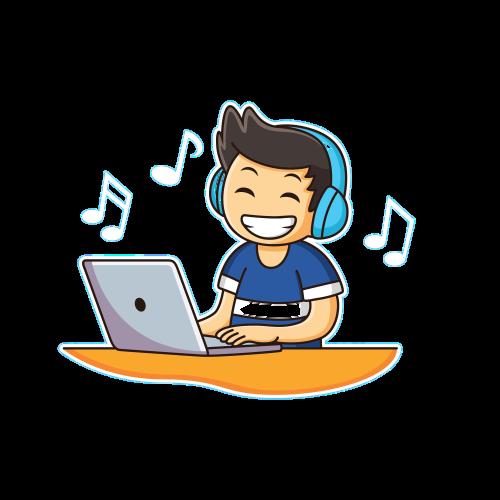

“David’s mom is fat. She needs to go on a diet.” When my sweet kindergartner innocently uttered this line after school one day, I couldn’t hide my shock. After experiencing my own body image ups and downs, I’d tried to protect my young kids from talk about weight loss and dieting. Faking composure, I countered with, “Oh? Um, where did you hear that?”
She explained, unfazed. “David’s mom said it herself. She was at school today and said to my teacher, ‘I’m fat and I need to go on a diet.’ She said she doesn’t like her butt.” With a throwaway shrug, she skipped off to join her friends on the swing set. I was left swinging between anger that my 5-yearold had been introduced, albeit accidentally, to the idea of dieting for weight loss, and relief that she hadn’t come up with the “too fat” judgment herself.
Mostly, though, I felt powerless. I’d tried to shield my child from diet culture and failed. Despite my efforts, the world’s message that our bodies are never good enough had found her.
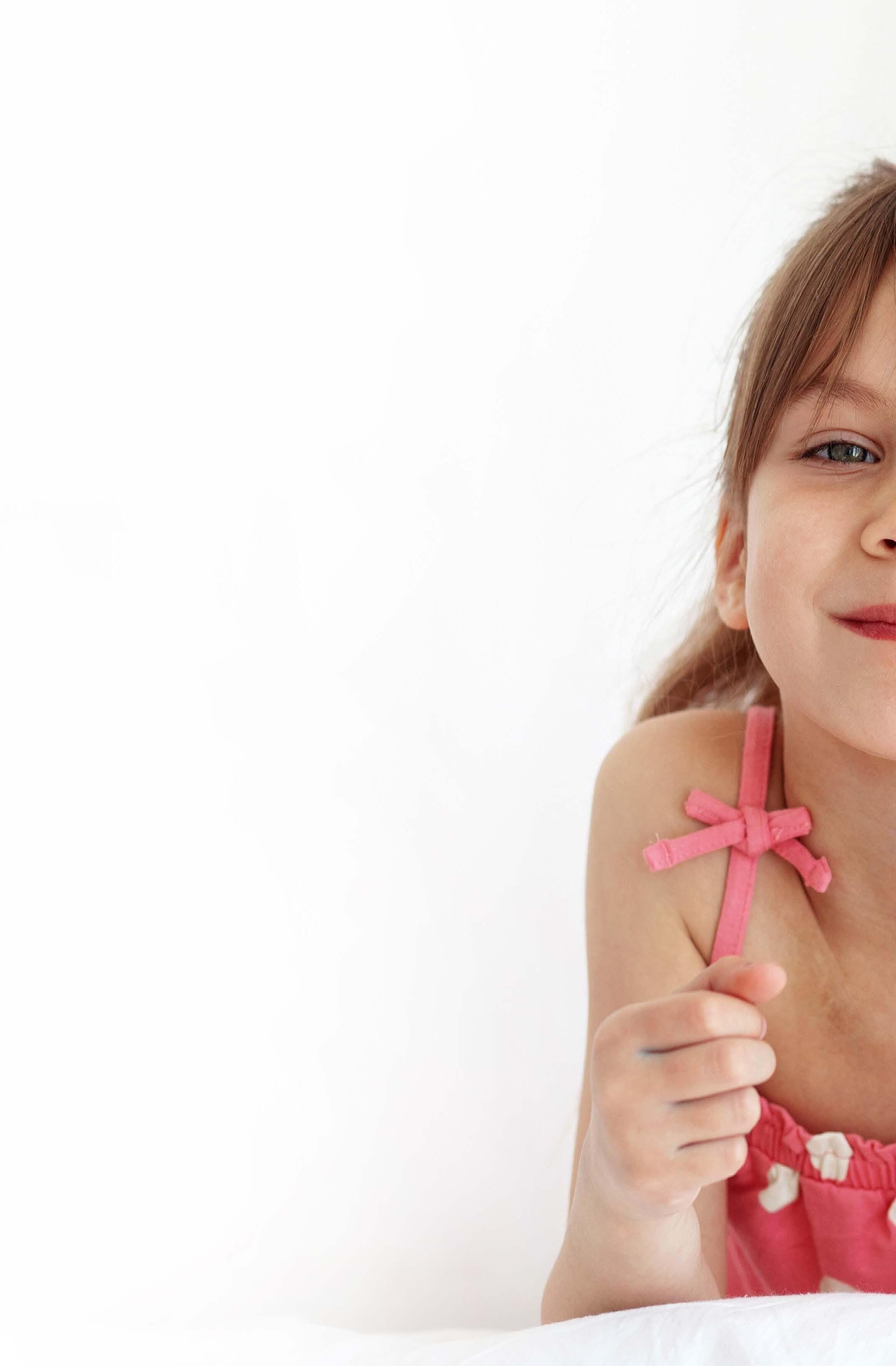
The term “diet,” of course, isn’t necessarily a dirty word. But equating thinness with virtue and encouraging the pursuit of a physical ideal through food restriction — the ideas central to “diet culture” — are problematic, says Amee Severson, a registered dietician whose work focuses on body positivity, fat acceptance, intuitive eating and social justice.
Though diet culture often passes for “wellness” or “clean eating,” it’s actually unhealthy because people stop tuning into their own body’s signals
about hunger and satiety, says Severson. By elevating thinness as the ideal physical state, moralizing food as good or bad, and promoting rule-based eating, diet culture disconnects people from their bodies’ actual nutritional needs. That might be why despite widespread dieting — one-third of Americans are on a diet any given time — nearly all dieters regain lost weight within a few years.
Like any effort toward self-improvement, dieting is well-intentioned. It’s also completely normal and accepted in our society, but that doesn’t mean it’s good for our bodies or minds, says Severson. “Even when it’s called ‘clean eating’ or ‘wellness,’ making food choices that don’t come from your own body’s cues, food choices that come from rules or moral judgments about good food or bad food, is considered disordered eating.”
Whether we like it or not, kids observe this type of disordered eating along with ideas about the right kind of body to have. Even well-meaning comments about body size, from “She’s really trimmed down! She looks great!” to “I’m just worried about his health,” can breed intolerance and exclusion at school and on the playground, says Severson. “Kids notice when we judge bodies, others’ or our own.
continued on page 12
When Kristine Strange talks about fitness with her two school-age sons, she’s careful to focus on effort, rather than physical appearance. “We talk about how strong our bodies are and how much work they can do, rather than what they look like,” she says.
When talking about bodies, parents of sons are wise to choose their words carefully, says Yolanda N. Evans, clinical director of Adolescent Medicine at Seattle Children’s Hospital. Boys develop unhealthy relationships with food and body image nearly as often as girls, but their struggles are often unrecognized by parents and caregivers. According to Stanford University researchers, because a traditional medical assessment for eating disorders is often gender-biased, conditions may be under-diagnosed in males.
Eating disorders among youth are on the rise worldwide, with more boys seeking treatment, says Evans, who works with boys as young as 8 in the Seattle Children’s Eating Disorders Program. “I have definitely seen an increase in the boys over the past 10-15 years, and the number of referrals to our eating disorder clinic has quadrupled.”
Around a quarter to a third of those struggling with an eating disorder is male, says clinical psychologist Michelle P. Maidenberg. Boys tend to experience different types of eating disorders than girls, making them harder to detect by parents and healthcare providers, she notes. “On average, boys develop eating disorders at a slightly younger age than girls do. They usually have binge eating disorder or not otherwise specified eating disorders, rather than anorexia or bulimia.”
The boys who seem to be most vulnerable to struggle with body image, eating disorders, and disordered (or abnormal) eating are those with a keen desire to be fit, lean, and thin, says Maidenberg. Boys involved in sports or activities where body weight is emphasized, like track, rowing, gymnastics, or wrestling, are vulnerable. “Socio-cultural and socio-economic factors also put boys at risk, particularly for boys who come from families with high levels of stress, poor patterns of communication, unrealistically high expectations, and under-developed problem-solving skills,” she says.
A boy with a close family member or parent with an eating disorder is more likely to develop one himself. Research shows that having a gender identity different from the one assigned at birth increases vulnerability for eating disorders. “In our gender clinic we see youth restricting food intake to delay puberty,” Evans says.

Everyday conversations may hold clues that signal a boy is struggling with body image and food, says Evans. When terms like “cut,” “shredded,” and “ripped” — terms for
continued on page 12
Being fat is still viewed very negatively, and fat people are still the butt of jokes.”
Not surprisingly, kids quickly turn this type of judgment on themselves. The idea that other people’s fat bodies are inferior is linked to what researchers call “shape dissatisfaction,” or unhappiness with one’s own body, along with dieting behavior in young children, disordered eating behavior, and eating disorders.
Fight back against fat shame
One way to fight diet culture: teach kids that “fat” is simply another descriptor, not a bad word, says Severson. “Guide your kids that fat is just another descriptor; I have brown hair, you’re short, I’m fat. It’s just a body size, and not a moral indicator of a good or bad human. The more we can teach kids that, the more we can fight back against diet culture.”
When well-meaning friends or relatives comment on a child’s size or food choices, a simple “Please don’t comment on our food or our bodies” is in order, says Severson. “As parents, we’re the protectors of our children’s bodies.”
Families that prioritize health can do it in a way that doesn’t promote restrictive eating,
an extremely defined, muscular physique — start showing up frequently, listen closely.
“When a boy says he wants to ‘eat healthy’ parents should really listen and ask what that means to him,” Evans says. “The challenge with eating disorders is that they can start with the child wanting to improve their health and fitness, and the parents want to support that. Then it spirals out of control.”
Signs that a boy is struggling with food or developing an eating disorder include sudden weight loss, obsessively reading about nutrition, a fixation with “clean” eating, excessive exercise, using supplements aimed at increasing muscle mass or cutting fat, and avoiding social gatherings and family meals, says Maidenberg.
Parents of younger boys may notice them moving food around on their plate, cutting food into tiny bites, and bringing home a nearly full lunchbox after school. “Parents have told me that they’ve found food hidden in their child’s glass of milk or napkin after dinner,” says Evans.
Left unchecked, these behaviors can lead to physical signs of malnourishment, including
says Ivory Bruinsma, a certified fitness instructor. A few years ago, her doctor advised weight loss after she survived stage-3 colon cancer. She resolved to find a way to heal her post-cancer, post-chemotherapy body without succumbing to diet culture or exposing her kids to restrictive eating.
“I was really hyper-aware about talking about weight loss in front of my kids,” she says. “They would ask why I was working out and I’d say, ‘Mama wants to be strong and play with you.’ If they saw me weighing myself, I’d say, ‘I’m checking how strong I am!’”
Even if we don’t think they’re watching, kids pick up on our deeply held beliefs about fat and thin, good and bad, and who is worthy of love, says Bruinsma. And before parents can keep diet culture from consuming their kids, they might need to heal themselves. “When I started my body acceptance journey, I literally stood naked in front of a mirror, at 200 pounds, and named each body part and why I loved it. I love my legs because they carry me where I want to go. I love my stomach because it carried three babies. No matter what my body looks like, I’m worthy, and I’m enough.” For my part, I’ve found stronger footing since my daughter’s innocent introduction to dieting in her kindergarten classroom. Though I know I can’t completely shield her or her siblings from diet culture, now I know I’m strong enough to fight back. And David’s mom, if you’re out there — you’re strong enough, too.
low heart rate, low blood sugar, constipation, dizziness, and feeling cold, says Evans. Eating disorders are linked to depression and anxiety; researchers estimate that nearly half of teens with an eating disorder are also depressed.
Parents can support a healthy body image by talking openly — and factually — about the physical form. Don’t shy away from questions about the body or how it works, says Maidenberg, whose book Free Your Child From Overeating helps parents encourage a healthy relationship with food.
Instead, use your son’s questions about his body as opportunities to talk about self-care, she says. “Part of loving himself means taking care of his body and keeping it strong and healthy by eating healthfully.”
Talking openly about bodies means being real about the physical changes that accompany puberty. “Before and after puberty, our bodies change dramatically, and weight gain can be a normal part of the process,” says Maidenberg.
In conversations with boys, be careful about confusing health and fitness, a common but potentially damaging mistake. Tell boys that it’s possible to be fit without being healthy —
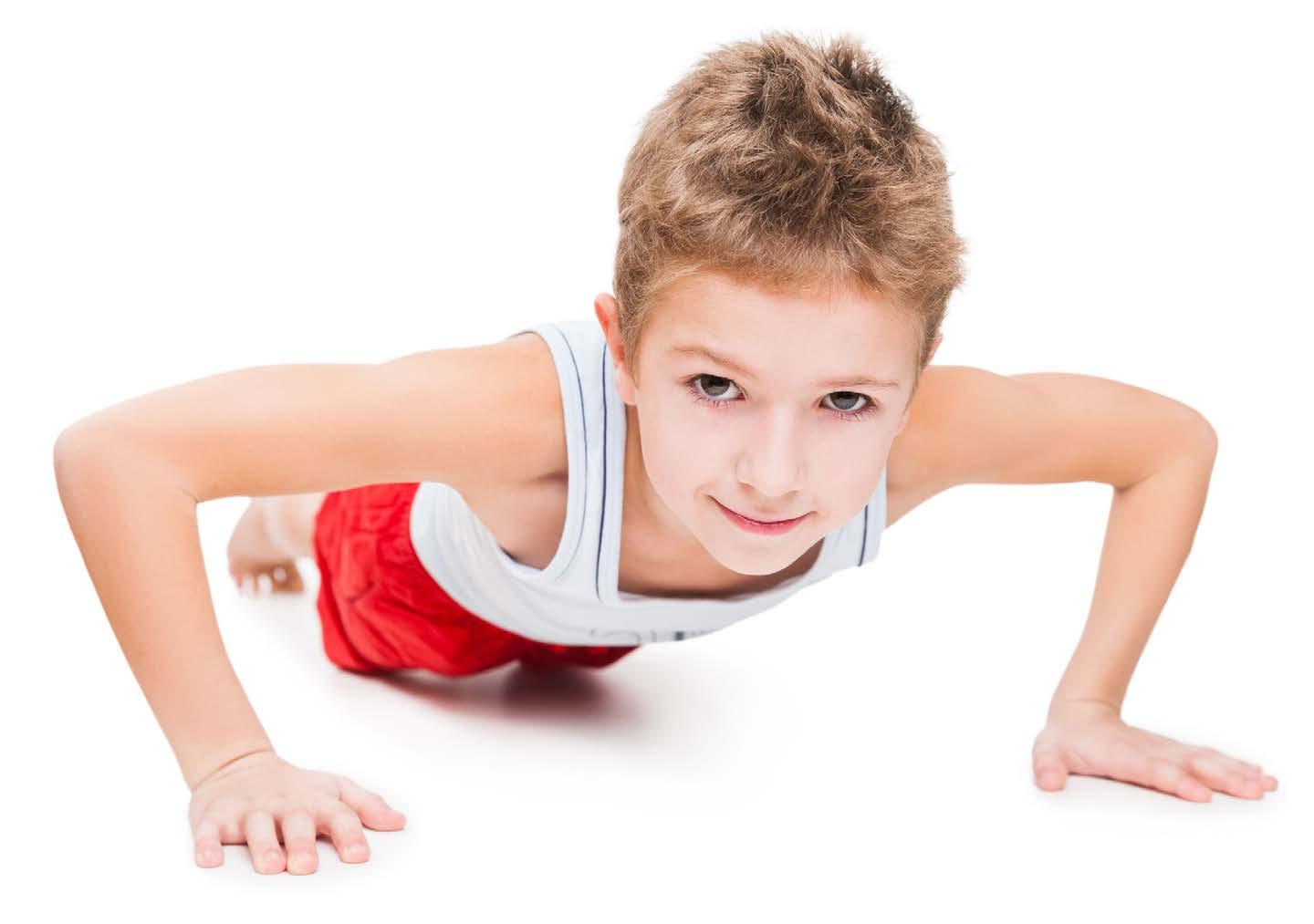
there are plenty of examples of exceptionally fit professional or elite athletes who experience serious health problems, from frequent bone fractures to heart disease to depression.
“Our health is important because it helps our bodies grow, function properly, and become strong,” says Maidenberg. Healthful behaviors like eating a balanced diet and resting enough give the body energy; behaviors like overtraining and food restriction that seem to boost fitness temporarily actually detract from health.
When talking about food choices — including yours — focus on balance instead of restriction, says Evans. “The dietitians I work with like to say ‘Every food has a purpose‘.” Instead of talking about losing weight or cutting foods out of your diet, talk about what the food you’re taking in is doing for you.
Communicate unconditional love and that physical attributes don’t determine his worth as a person, says Maidenberg. “Our body size and shape are in part due to heredity, much the same as eye color and height. His worth to you is not determined by his shape or size or what he looks like. How much he weighs is not a measure of who he is as a person.”

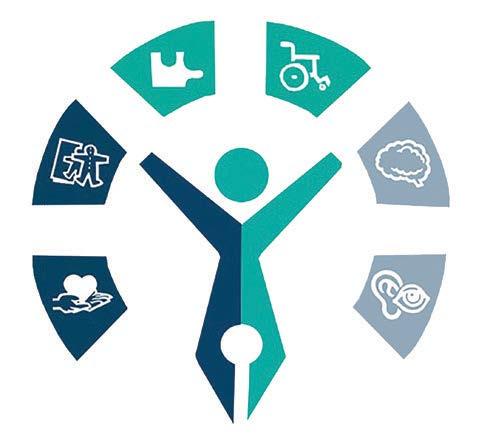

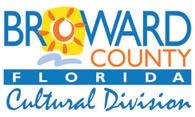





ver the past year, with good reason, many of us have missed out on the activities, events and hobbies we consider enjoyable. And many — children and parents alike — are antsy to move beyond the four walls we call home, maybe even more so once the school year comes to a close. Summer camp has long been an outlet for kids to expend energy, learn unique skills and make new friends. Even in the midst of the COVID-19 pandemic, many summer camps will be up and running either offering alternative programs or by following safety protocols to reduce the risk to campers and staff.
Summer camp offers kids plenty of benefits, and many kids love the idea of going away to summer camp. Still, for some kids, particularly those who are shy,
introverted or homebodies, the thought of going away for a night, let alone a week or more, can cause considerable anxiety. When kids are adamantly opposed, forcing summer camp on them may not be in their best interest.

But for kids who are eager — or at least willing to give it a shot without much fuss — summer camp offers opportunities kids may not have elsewhere. Summer camp provides kids the following benefits:
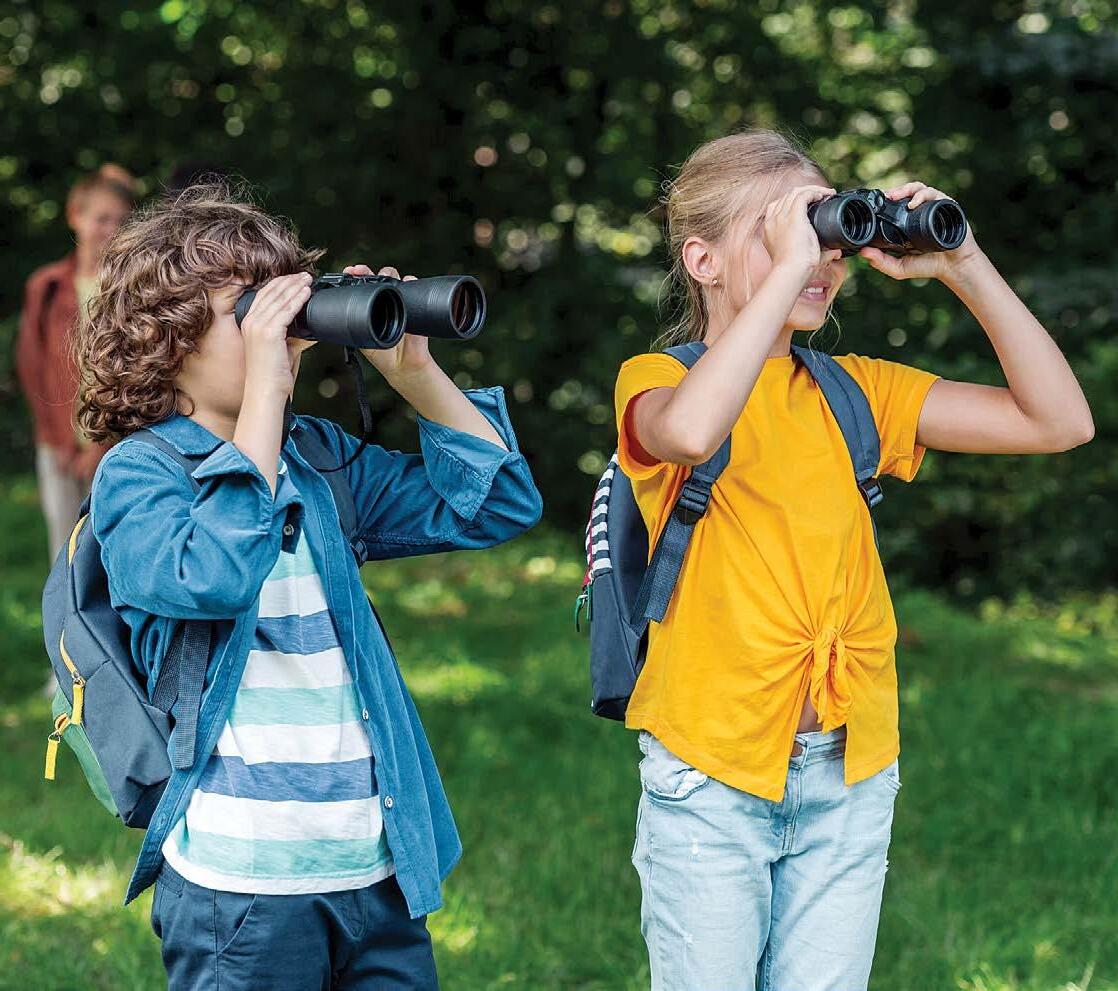

• fosters independence
• a place to develop new and lasting friendships
• development of new skills
• discovery of new interests and hobbies
• the opportunity for creative expression
• a break from being plugged-in
• daily exercise
• improves their self-esteem
• teaches kids to work with others
• makes them feel part of a community
• prevents or reduces summer learning loss
GETTING STARTED IN YOUR SEARCH
Before you begin looking into summer camps, create a list of the criteria you’re
looking for. Here are some things you’ll want to consider.
• What is your budget for summer camp?
• What is the purpose of sending your child to summer camp?
• Do you want an overnight or day camp?
• Are you looking for a daily, weekly or summer-long program?
• Do you want a camp that’s structured or one that provides your child with lots of freedom and choices?
• What are your child’s passions, such as a particular sport, hobby, or other interest?
Once you’ve narrowed down some of the criteria, you can begin your search.
The American Camp Association (ACA) accredits summer camps. So this is an excellent place to look. The ACA educates camp owners and directors in health and safety for staff and campers as well as program quality. It then accredits camps that meet the ACA’s standards.
NEXT STEPS TO FINDING THE PERFECT SUMMER CAMP
Once you’ve selected a few summer camps that meet your primary criteria,
and that fit your child’s interests, share the choices with your child to see what excites him or her. Be sure to let your child know upfront that you still need to thoroughly investigate the camp(s) before making a final decision. But do keep your child’s choices in mind to ensure your child gets the most out of summer camp.
Once you and your child have narrowed the list down to a manageable selection, you’ll want to investigate the camps further. There are several things you’ll want to consider.

Many summer camps are now offering virtual programs so kids can benefit from summer camp without the risk of contracting and spreading COVID-19. Virtual summer camps range from a couple of hours a day to all-day camps offering a broad range of virtual activities led by counselors. Virtual summer camp programs range from free to several hundred dollars.
Perhaps you’re considering sending
your child to in-person summer camp. If so, the Centers for Disease Control (CDC) offers suggestions on how summer camp programs can reduce campers’ risk during the pandemic. Recommendations include promoting behaviors to minimize spread, maintaining a healthy environment, maintaining healthy operations, being prepared for when someone gets sick, and special considerations for overnight camps. When considering an in-person summer camp, review the CDC’s more detailed recommendations found at www.cdc.gov/coronavirus/2019-ncov/ community/schools-childcare/ summer-camps.html. Compile questions to ask the summer camp you’re considering to make sure it adheres to these safety protocols.
WHAT ARE THE STAFF’S QUALIFICATIONS?
Many summer camps use teens to staff the camps. Teens make excellent mentors and can bring liveliness to summer camp programs. However, the programs themselves should be developed by
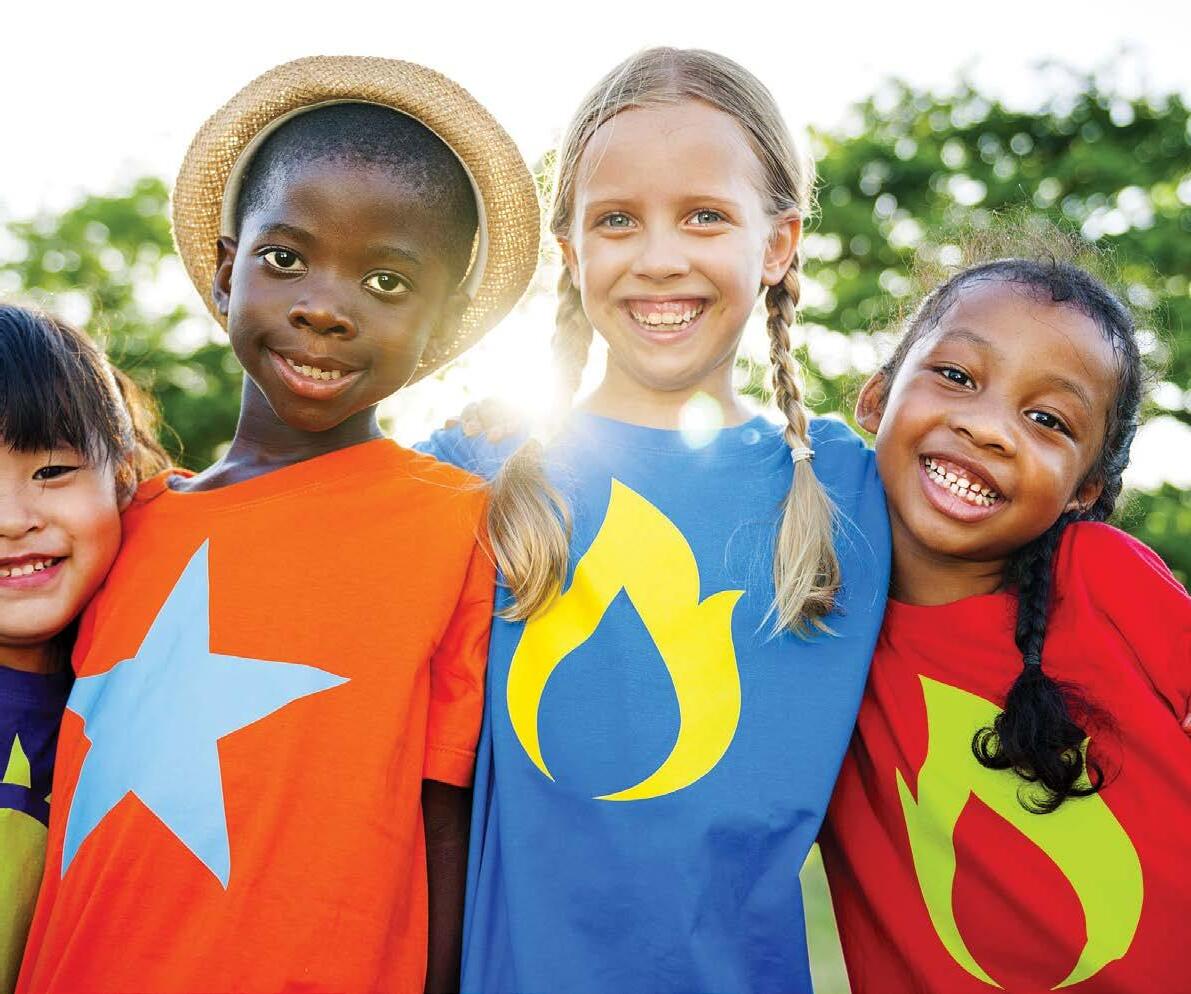
professionals and have professional oversight to ensure kids are getting the most from their camp experience.
HOW DOES THE CAMP ENSURE YOUR CHILD’S SAFETY?
Find out what kind of safety training the camp provides its staffers. Also, is there staff on hand at all times that knows CPR? What are the camp’s procedures in the event your child becomes ill, has an accident, or an emergency?
WHAT IS THE DAILY SCHEDULE FOR CAMPERS?
Ask for a daily itinerary so you know your child will be getting everything you and your child anticipate from the program.
DON’T SWEAT IT
Keep in mind, although there are many great camps, no camp is likely to offer everything precisely the way you want it. Just choose the one that best fits your child and satisfies your most important criteria. Remember, your child will have many summers to come and plenty more opportunities to work in more exciting camp experiences.
10901 Old Cutler Rd., Coral Gables, Florida 33156 305-667-1651 • www.fairchildgarden.org
Q. What do you think parents would say is the best part of sending their child to your camp?
A. Camp Discovery at Fairchild is a fun and educational adventure every single day. It offers kids an opportunity to explore Fairchild’s tropical oasis, hang out with exotic butterflies, experiment with plants that can feed astronauts, and even create, in our new state-of-the-art maker studio. Campers are sure to love it.
Q. What changes have you made to address the challenges of COVID this past year?
A. To ensure camper’s safety, we have reduced class size to eight students and require all staff and campers to wears masks. Staff and campers will pass a health screening prior to the start of each day and campers will be receive their own set of tools and supplies.
Q. Does your camp/program offer sessions? What are the dates and hours? How is registration handled?
A. For children 7-12, we offer six, week-long, live camp sessions from June 21-July 30, 2021. Camp will run from 9 a.m. to 3:30 p.m.
Drop off starts at 8:30 a.m. with optional aftercare from 3:30-5:30 p.m. Register online at www.fairchildgarden.org.
Q. What are some of the social/physical/academic benefits kids gain from camp?
A. Campers will reconnect with nature and their peers in a safe and fun environment. They will gain interpersonal, communication, problem-solving and critical-thinking skills by collaborating with others and participating in a variety of activities, games and crafts.
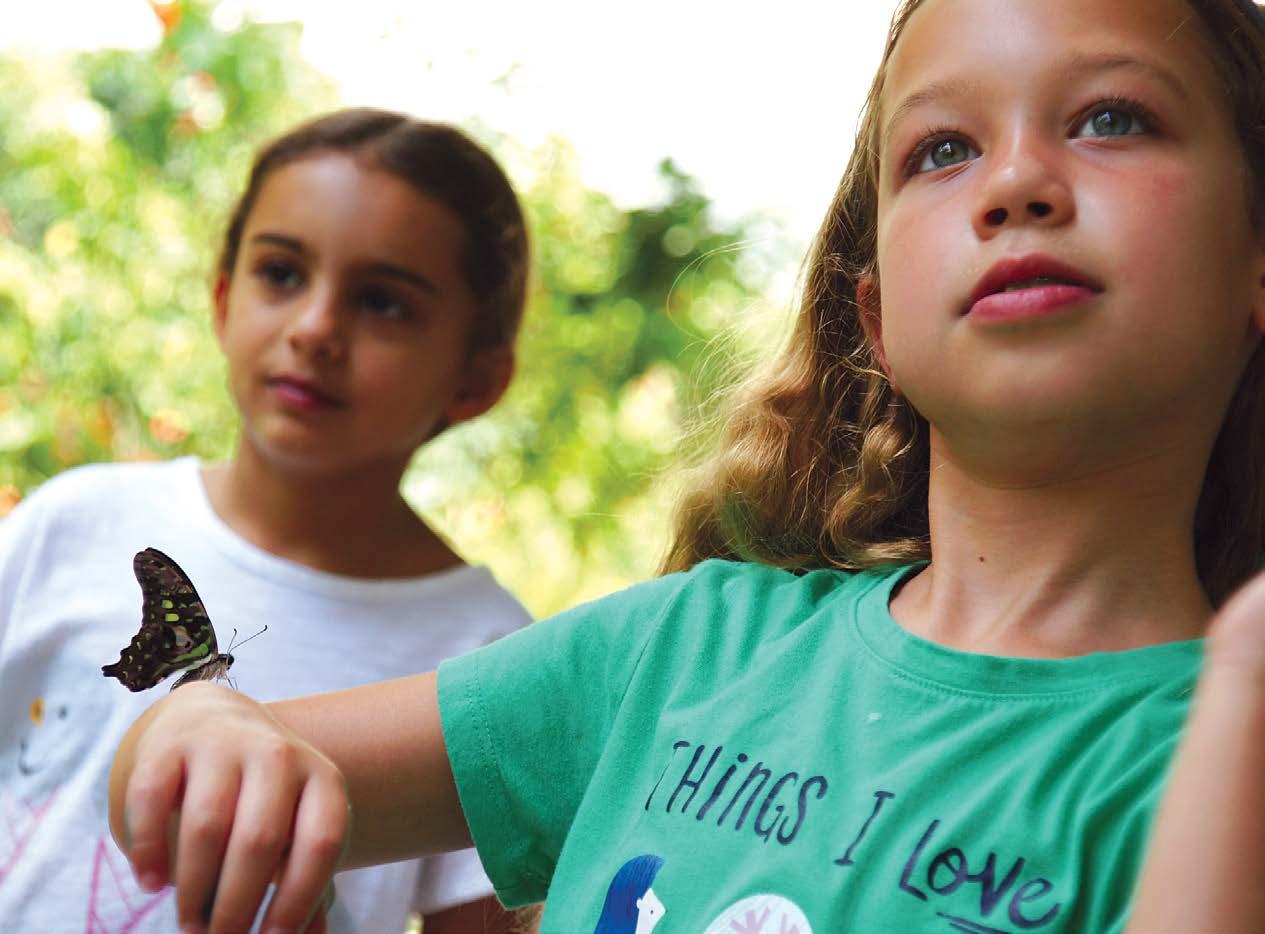
22000 US 27, Lake Wales, Florida 33859 863-676-6091 • www.vanguardschool.org
Q. Does your camp/program offer sessions? What are the dates and hours? How is registration handled?
A. Our camp sessions begin on June 27th through July 24th. We have 4-week boarding for Adventure Camp, or Credit Recovery. We also have 2-week options for Adventure Camp or ACT Preparation, which start either June 27th or July 11th. All students enjoy evening and weekend activities together.
Q. What distinguishes your camp from others in the area?
A. Summer Camp at The Vanguard School provides academics and adventure! Students in middle and high school address core academics, make friends, work on independent living, and executive functioning. We help students who have fallen behind in high school credits, need extra preparation for the ACT, or just need structured activities.
Q. What do you think parents would say is the best part of sending their child to your camp?
A. We hear parents each summer comment on their student’s new skills, the fun they had in learning, and friendships that develop. Most of our summer campers enroll in the fall as the students and parents see the guided learning that engages students at Vanguard.
Q. What are some of the social/ physical/academic benefits kids gain from camp?
A. As a school that works with students who demonstrate a variety of learning challenges, The Vanguard School camp provides accommodations and supports throughout summer, too! Many of our students need individualized guidance and assistance, and we work with all students in addressing their needs.
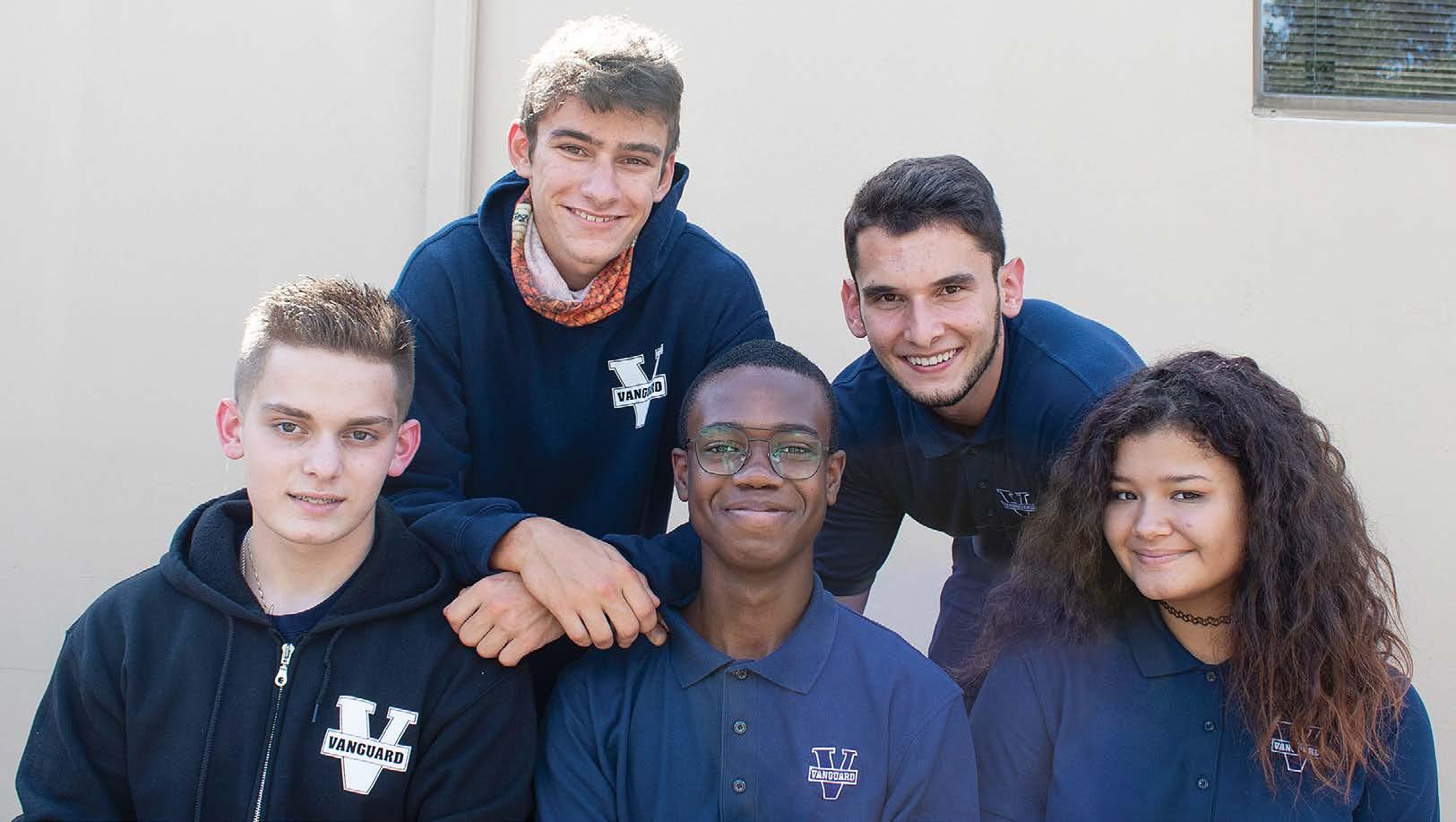
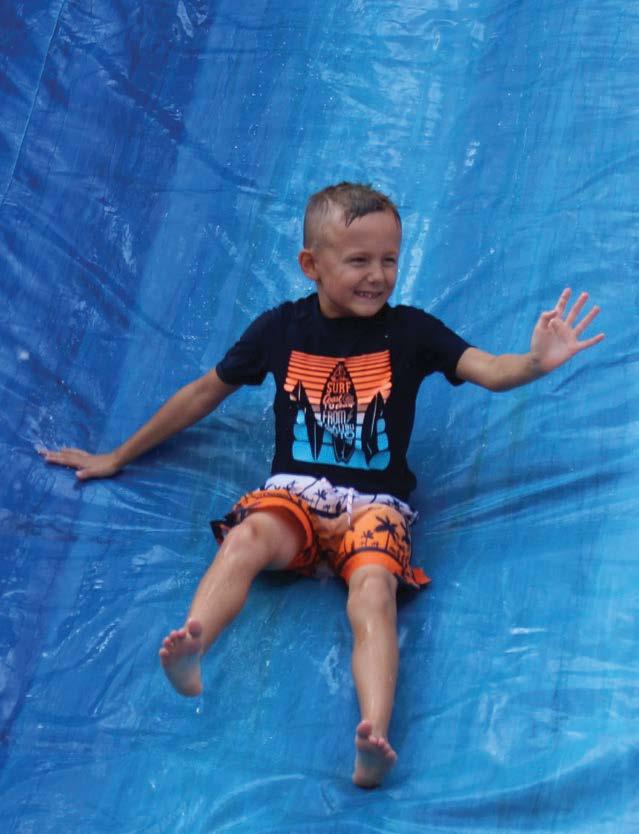
Archery
Arts and Crafts
Cartooning
Cheerleading
Cooking
Dance
In-House Field Trips
Halloween in July
Innovation
Martial Arts
Sports
Swimming

Terrific Tuesdays
Wacky Wednesdays
Among Us
Animation
Baseball
Basketball

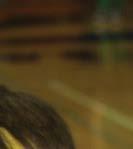

Builders Club
Craft Masters
Golf
Hablo Español
MakeCode Arcade
Minecraft
Mini Med School
Roblox


Rock n’ Roll Club
Science Palooza
This program gives students ages 5 and up the opportunity to enrich their summer with learning experiences in Reading, Mathematics, Foreign Language, Writing, and Language Arts.


June 7 - July 30 Two-Week Sessions Available
Post Camp Sessions run from August 2–6
Camp hours are: 8:30 a.m. – 4:30 p.m. Hot lunches and snacks are included.
Soccer
Speech and Debate
Volleyball
World of Wizards
Web Design





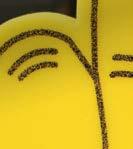






Families who pay in full by APRIL 16 will receive 10% OFF*



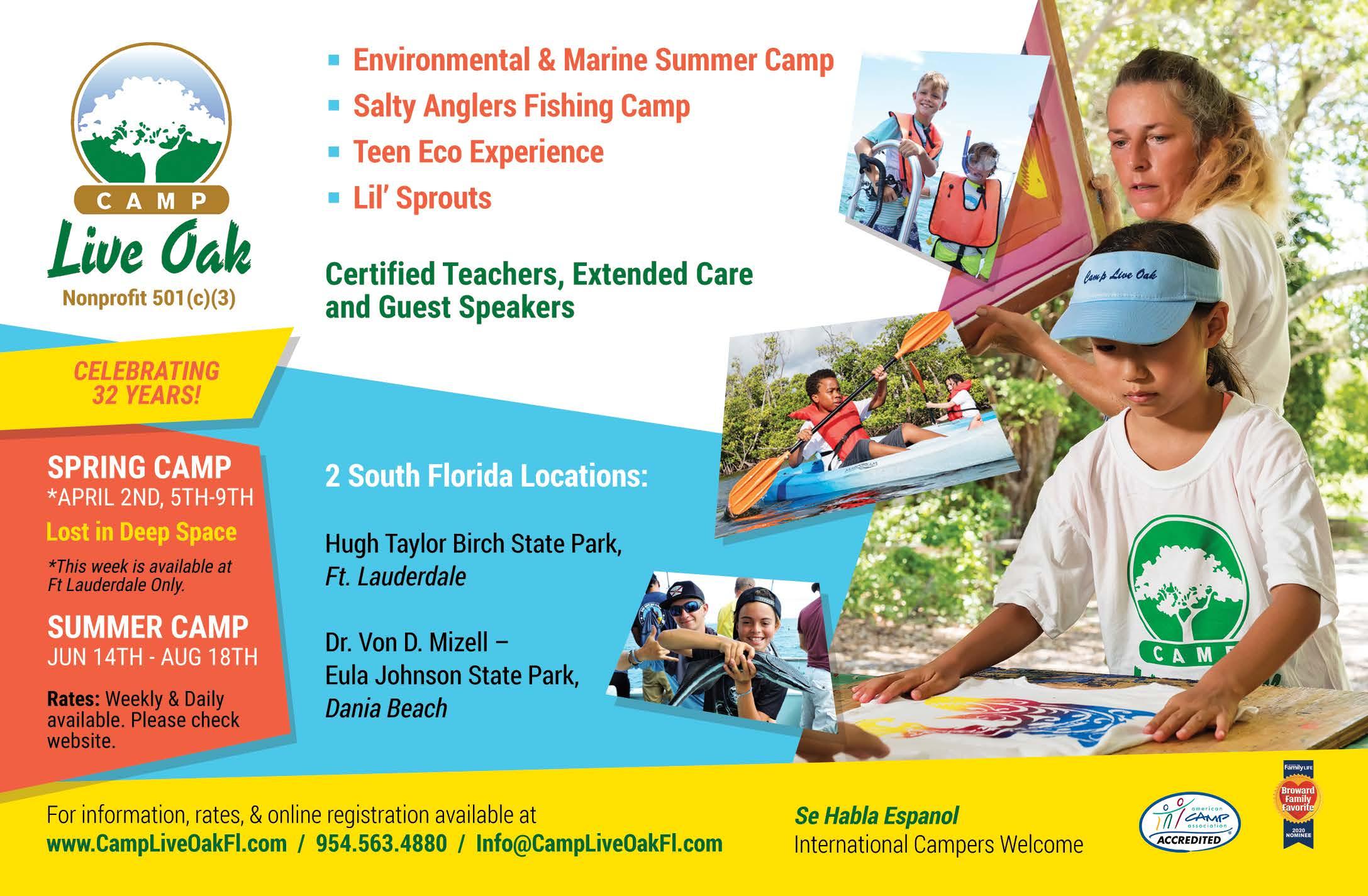








































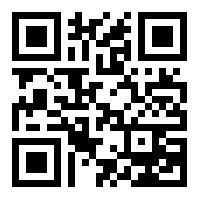
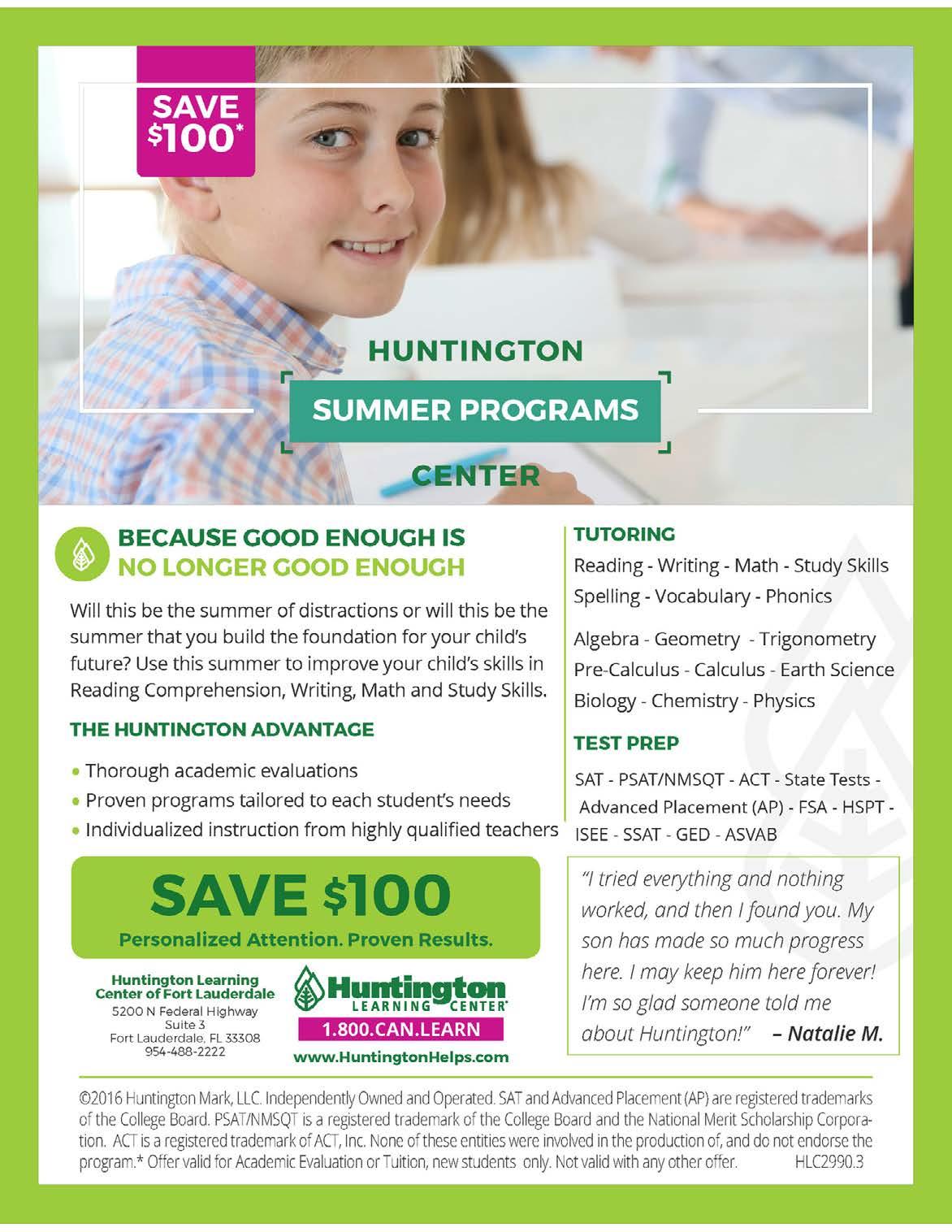


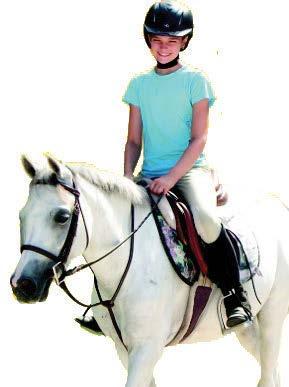

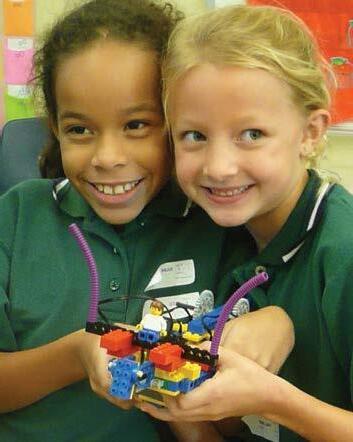
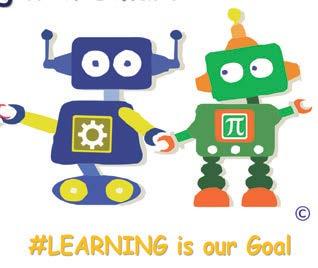

Discover the wonders of science through hands-on science experiments and activities.
For details and online registration, visit frostscience.org/summercamp, call 305- 434-9564 or email camp@frostscience.org.
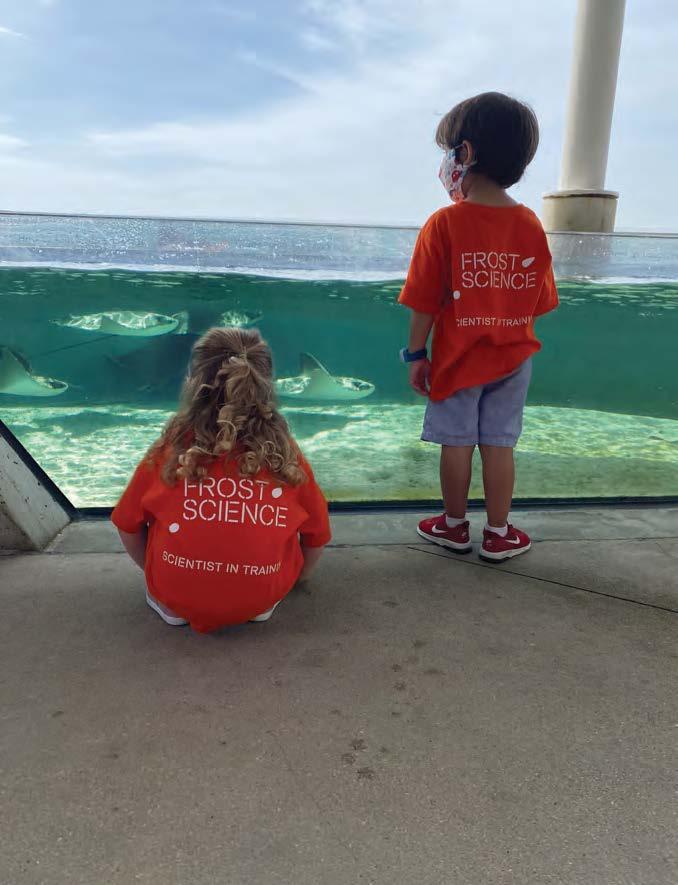
June 14 -

August 13
Ages 4 - 11
1101 Biscayne Blvd, Miami, FL 33132 | 305-434-9600 | frostscience.org

at
June 14 – August 20, 8 am – 5 pm Ten, five-day sessions are available!

Children, ages 6-14, will explore and learn from nature at Deering Estate’s Summer Camp!
Eco Explorers (ages 6-8) $175 for a five-day session

Expedition Deering (ages 9-14) $200 for a five-day session Space is limited; register online.

Campers must practice social distancing and wear face coverings. Please review the latest safety guidelines prior to attending.
16701 SW 72 Avenue Miami, FL 33157 Deering Estate
To request materials in accessible format, sign language interpreters, and/or any accommodation to participate in any Miami-Dade Parkssponsored program or meeting, contact Gisel Prado, 305-755-7848 or Gisel.Prado@miamidade.gov, at least 7 days in advance to initiate your request. TTY users may also call 711 (Florida Relay Service).
(Hands on Activities; music, art, storytime, puppet shows and outdoor activities)





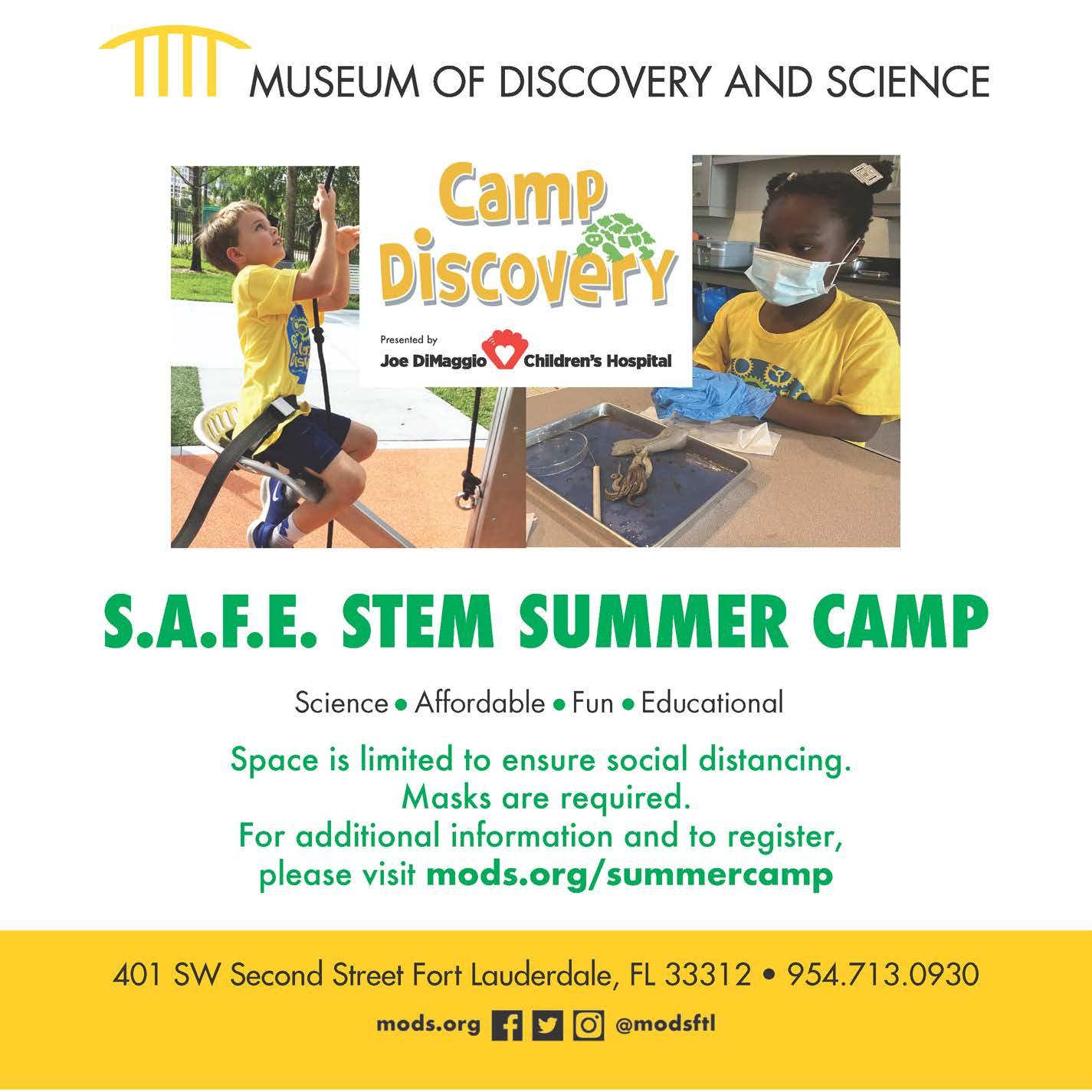






How often do you hug your children?
We all live busy, stressful lives and have endless concerns as parents, but it is clear that one of the most important things we need to do is to stop and give our kids a big loving squeeze. Research over the past decade highlights the link between affection in childhood and health and happiness in the future.

According to Child Trends, a nonprofit research organization focused on improving the lives and prospects of children, youth, and their families, science supports the idea that warmth and affection expressed by parents to their children results in life-long positive outcomes for those children.
Higher self-esteem, improved academic performance, better parent-child
communication, and fewer psychological and behavior problems have been linked to this type of affection. On the other hand, children who do not have affectionate parents tend to have lower self-esteem and to feel more alienated, hostile, aggressive and anti-social.
There have been recent studies that highlight the relationship between parental affection and children’s happiness and success.
In 2010, researchers at Duke University Medical School found that babies with very affectionate and attentive mothers grow up to be happier, more resilient, and less anxious adults. Five hundred people were followed from when they were infants until they were in their 30s. When the babies were 8 months old,
psychologists observed their mothers’ interactions with them as they took several developmental tests. Then 30 years later, those same individuals were interviewed about their emotional health. The adults whose mothers showed “extravagant” or “caressing” affection were much less likely than the others to feel stressed and anxious. They were also less likely to report hostility, distressing social interactions and psychosomatic symptoms. Researchers concluded that the hormone oxytocin may be responsible for this effect. Oxytocin is a chemical in the brain released during times when a person feels love and connection. It has been shown to help parents bond with their children, adding a sense of trust and support between them. This bond most likely helps our brain produce and use
oxytocin, causing a child to feel more positive emotions.
A separate study from UCLA found that unconditional love and affection from a parent can make children emotionally happier and less anxious. This happens because their brain changes as a result of the affection. On the other hand, the negative impact of childhood abuse and lack of affection impacts children both mentally and physically. This can lead to all kinds of health and emotional problems throughout their lives. What’s fascinating is that scientists think parental affection can protect individuals against the harmful effects of childhood stress.

Researchers have also studied the benefits of skin-to-skin contact for infants. This special interaction between mother and baby, in particular, helps calm babies so they cry less and sleep more. It has also been shown to boost brain development. According to an article in Scientific American, children who lived in a deprived environment like an orphanage had higher levels of the stress hormone cortisol than those
who lived with their parents. Scientists believe that the lack of physical contact in the orphanages is a major factor in these physical changes.
Finally, numerous studies on the effects of massage show the positive benefits it offers to reduce anxiety in children. Massage is also a good way for parents to connect to their children, both physically and emotionally. Starting in infancy, a parent can begin to massage their child, which can create a strong bond. Studies have shown children and adults who receive massage experience less anxiety during academic stress, hospital stays and other stressful events.
From the moment you bring your baby home from the hospital, be sure to hold, touch, and rock them in your arms. Spend many precious moments caressing your baby so that their skin can touch your skin.
As they get older, be playful by doing fun activities like dancing together or creating silly games like pretending to be a hugging or kissing monster.
Set a reminder to make sure hugging is part of your daily routine. In the adorable Trolls movie, the trolls wore watches with alarm clocks that would go off every hour for hug time. If that’s what it takes, then set yourself an alarm. Or make sure to give your kids a hug during certain times of the day, such as before they leave for school, when they get home from school, and before bedtime.
Another interesting idea is to use affection while disciplining your child. As you talk to them about what they did wrong, put your hand on their shoulder and hug them at the end of the conversation to ensure them that, even if you are not pleased with their behavior, you still love them. If your children hit their sister or brother, hug them and explain how hugging feels better than hitting. Finally, be careful not to go overboard and smother your kids. Respect their comfort level, and be aware that this will change as they go through different stages.
Sandi Schwartz is a writer and editor who specializes in parenting, wellness, environmental issues and human behavior.
Please e-mail listing information to calendar@southfloridafamilylife.com by the 5th of the month prior to the event date. Include the name of the event, location, address, date, time, brief description, price and telephone number for the public.
more. Free with paid museum admission. 10am-5pm, MUSEUM OF DISCOVERY AND SCIENCE, 401 SW Second St., Fort Lauderdale, 954-467-6637 www.mods.org
THURSDAY, APRIL 22
Pick up a craft bag to make your own special Earth Day project at home. While supplies last. 10am-6pm, WESTON LIBRARY, 4205 Bonaventure Blvd., Weston, 954-357-5420 www.broward.org/library
THURSDAY, APRIL 22
Learn about Earth Day through stories and crafts. Ages 5-11. $15 for Coconut Creek residents; $20 for non-residents. 3-5pm, COCONUT CREEK RECREATION COMPLEX, 4455 Sol Press Blvd., 954-956-1580 www.coconutcreek.net
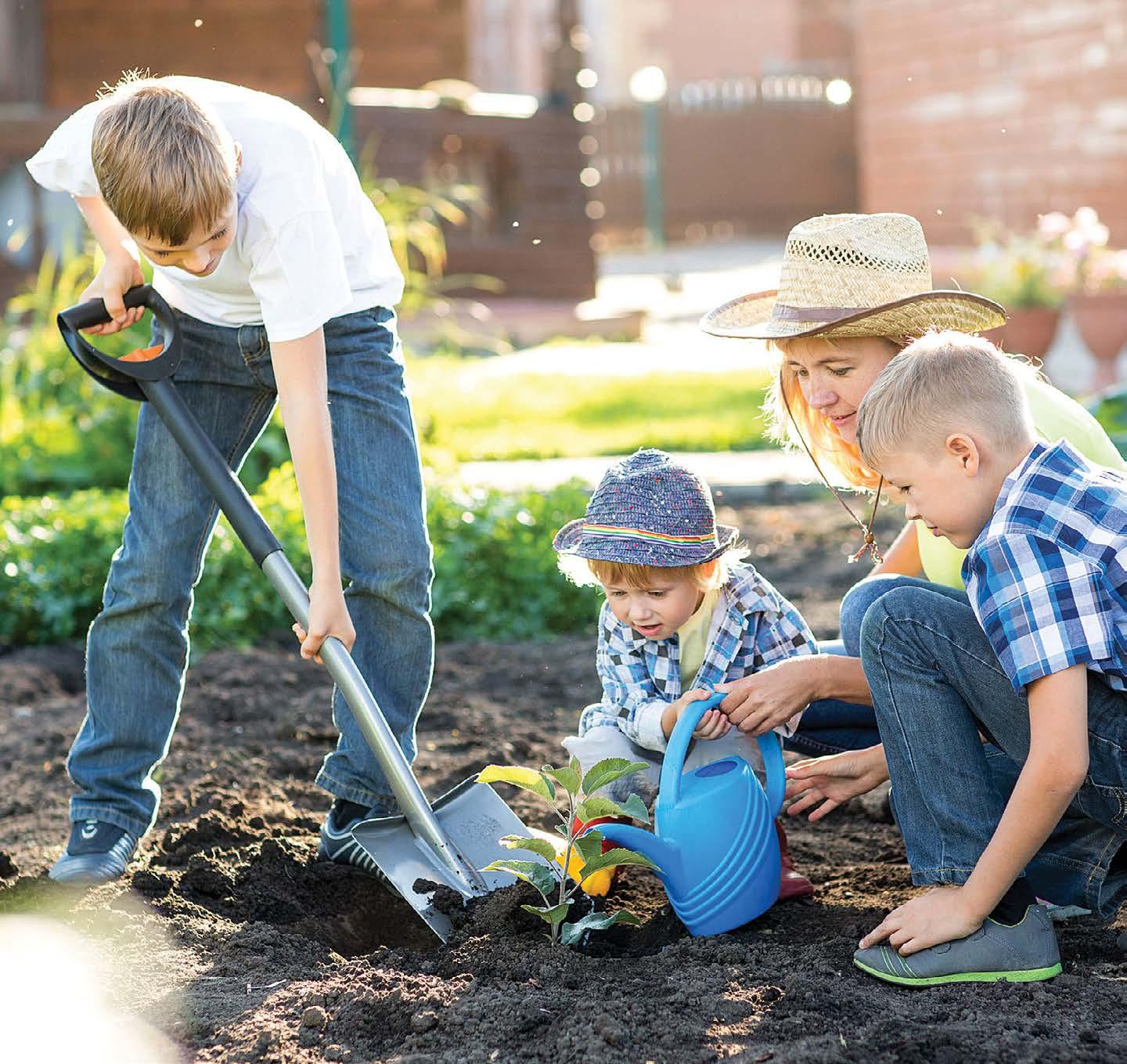
Movie in the Park
FRIDAY, APRIL 23 & SATURDAY, APRIL 24
Settle in for an outdoor screening of Spiderman into the Spider Verse. Pre-registration required online. Free. 8pm, Friday at SABAL PINES PARK, 5005 NW 39 Ave., Coconut Creek and Saturday at LAKESIDE PARK, 5555 Regency Lakes Blvd., Coconut Creek, www.coconutcreek.net
SATURDAY, APRIL 24
Moonlight Movie in the Park
SATURDAY, APRIL 10
FRIDAY-SATURDAY, APRIL 2-3
Join MODS for a sensory-friendly screening of Into America’s Wild, musical instrument making and more. Free with paid museum admission. 2pm, MUSEUM OF DISCOVERY AND SCIENCE, 401 SW Second St., Fort Lauderdale, 954-467-6637 www.mods.org
SATURDAY, APRIL 3
Bring your own basket to hunt for eggs around the museum. Online pre-registration required. Included with paid admission. 9:30am, ages 2-5; 10:30am, ages 6-10. MUSEUM OF DISCOVERY AND SCIENCE, 401 SW Second St., Fort Lauderdale, 954-467-6637 www.mods.org
Orchid & Bromeliad Show
SATURDAY-SUNDAY, APRIL 3-4
Experience the beauty and diversity of orchids and bromeliads during this 39th annual event. Timed, advance purchase tickets required. $21.95/adult, $15.95/child. 9:30am-4:30pm, FLAMINGO GARDENS, 3750 S. Flamingo Rd., Davie, 954-473-2955 www.flamingogardens.org
Secure a socially-distanced circle on the field and settle in for an outdoor screening of The Croods: A New Age. Free. Gates open at 7:15pm. 8pm, TEQUESTA TRACE PARK, 600 Indian Trace, Weston, 954-385-0500 www.westonfl.org
Supercar Saturdays
SATURDAY, APRIL 10
Swing by the Shops at Pembroke Gardens to see some super sleek cars the second Saturday of every month during this family and pet-friendly event. 9am-1pm, SHOPS AT PEMBROKE GARDENS, 527 SW 145 Terrace, Pembroke Pines, 954-450-1580 www.pembrokegardens.com
Steam Train Rides
SATURDAY, APRIL 17
All aboard! Hop on a model steam train for a ride around the track. $1.50/ride. 10am-4pm, TRADEWINDS PARK, 3600 W. Sample Rd., Coconut Creek, www.broward.org/parks
Loggerhead Sea Turtle Day
SATURDAY, APRIL 17
Celebrate the start of sea turtle nesting season by meeting animal keepers, making turtle crafts and
Kids ages 9-13 can put their cooking skills to the test as they create meals from scratch using mystery ingredients. $20. MIRAMAR CULTURAL CENTER BANQUET HALL, 2400 Civic Center Place, Miramar, www.miramarculturalcenter.org
Science of Stringed Instruments
SATURDAY, APRIL 24
Music lovers of all ages can uncover the science of instruments while making rain sticks and other instruments in the STEM lab. Free with paid museum admission. 10am-5pm, MUSEUM OF DISCOVERY AND SCIENCE, 401 SW Second St., Fort Lauderdale, 954-467-6637 www.mods.org
Heal The Planet Day
SUNDAY, APRIL 25
Celebrate Earth Day with an array of wellness activities for all ages incuding, a Kids Zone, Grow Your Own Zone, Vendor Village, live entertainment and more. 10am-4pm, ESPLANADE PARK, 400 SW Second St., Fort Lauderdale, www.healtheplanet.com/events/heal-the-planet-day
Tamarac Community Farmers Market
SUNDAYS
Enjoy the open air while you shop for fresh produce, tea, honey and other local products every Sunday. 9am-2pm, VETERAN’S MEMORIAL PARK, 7825 Southgate Blvd., Tamarac, www.tamarac.org
THURSDAY, APRIL 1
After-hours event includes exploring the gardens at night, an animal disco, scavenger hunts and a make-your-own Fantastic Creatures activity. Tickets must be purchased online, in advance.
$18. 5-8pm, VIZCAYA MUSEUM AND GARDENS, 3251 S. Miami Ave., Miami, www.vizcaya.org
FRIDAY-SUNDAY, APRIL 2-4
Receive a treasure map and head off on an in-park scavenger hunt. Included with park admission. MIAMI SEAQUARIUM, 4400 Rickenbacker Causeway, Miami, www.miamiseaquarium.com
Gold Coast Free First Saturday
SATURDAY, APRIL 3
Explore the museum for free the first Saturday of every month. GOLD COAST RAILROAD MUSEUM, 12450 SW 152 St., Miami, 305-253-0063 www.goldcoastrailroadmuseum.org
Zoo Miami Egg-Venture
THROUGH APRIL 4
Use your cell phone to solve clues and search for eggs at Zoo Miami with a spring-themed scavenger hunt. Included with paid admission. 10am-5pm, ZOO MIAMI, 12400 SW 152 St., Miami, 305-251-0400 www.zoomiami.org
Movies on the Lawn
FRIDAY, APRIL 9
Bring a blanket, and claim a socially distant circle on the lawn to enjoy an outdoor showing of The Croods: A New Age. $10/person. 7pm, EVELYN GREER PARK, 8200 SW 124 St., Pinecrest, www.pinecrest-fl.gov
SATURDAY, APRIL 3
A green health and wellness expo for the whole family with workshops, giveaways, demonstration and more. 10am-4pm, SOUTH FLORIDA SCIENCE CENTER AND AQUARIUM, 4801 Dreher Trail North, West Palm Beach, 561-832-1988 www.sfsciencecenter.org
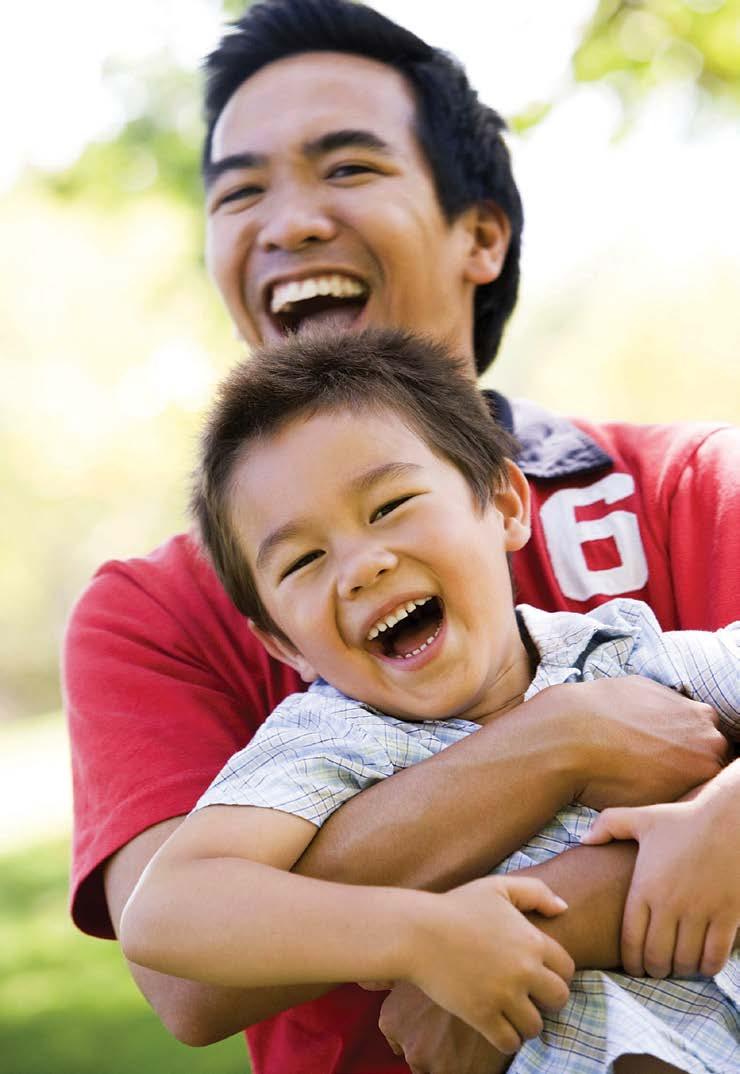
Koto Demonstration
SATURDAY, APRIL 3
Listen to the tranquil sounds of the koto while learning about the traditional Japanese instrument. $5, plus paid admission of $15/adult, $9/child. Noon, 1:30 & 3pm, MORIKAMI MUSEUM AND JAPANESE GARDENS, 4000 Morikami Park Rd., Delray Beach, 561-495-0233 www.morikami.org
SATURDAY, APRIL 10
Students in grades 1-12 will show off their engineering design and talent throughout the day during this annual competition.
Family Day on Aragon
SATURDAY, APRIL 10
Enjoy a day of family fun activities, arts and crafts, live performances and more every second Saturday of the month. 2-8pm, CORAL GABLES MUSEUM, 285 Aragon Ave., Coral Gables, 305-603-8067 www.coralgablesmuseum.org
Pour Your Art Out
SATURDAYS, APRIL 10 & 24
Receive a kit and settle into the studio to create an Earth Day drawing on April 10 or a tribal mask on April 24. $15. 1pm, ADRIENNE ARSHT CENTER FOR THE PERFORMING ARTS, 1300 Biscayne Blvd., Miami, 786-468-2000 www.arshtcenter.org
Nature’s Superheroes: Life at the Limits
THROUGH APRIL 11
Learn about the diversity of the natural world, and discover nature’s most bizarre creatures through this interactive exhibit. PHILLIP AND PATRICIA FROST MUSEUM OF SCIENCE, 1101 Biscayne Blvd., Miami, 305-434-9600 www.frostscience.org
Night Hike & Campfire
WEDNESDAY, APRIL 14
Explore the woods at night with a guided tour followed by a campfire. $15. Tickets sold online only. 7-9:30pm, DEERING ESTATE, 16701 SW 72 Ave., Miami, 305-235-1668 www.deeringestate.org
Movies Under the Gables
Moonlight
SATURDAY, APRIL 17
Bring lawn chairs or a blanket for an outdoor screening of Jurassic Park. Coral Gables residents only. $10/family pod of up to four. 6pm, WAR MEMORIAL YOUTH CENTER ATHLETIC FIELD, 405 University Dr., Coral Gables, 305-446-6800 www.coralgables.com
APRIL 17-MAY 2
Use your mobile phone for a mobile scavenger hunt with educational missions, raffles and prizes. Included with paid admission. 10am-5pm, ZOO MIAMI, 12400 SW 152 St., Miami, 305-251-0400 www.zoomiami.org
Art Outside
SUNDAY, APRIL 25
The Bass brings Family Day outdoors with a 3D sculpture-making activity. 2-4pm, COLLINS PARK, 2100 Collins Ave., Miami Beach, 305-673-7530 www.thebass.org
MONDAY, APRIL 26
Bring a picnic, chairs and binoculars to view the full moon in the Miami sky. $10. DEERING ESTATE, 16701 SW 72 Ave., Miami, 305-235-1668
www.deeringestate.org
Food Truck Wednesdays
WEDNESDAYS
Bring the family and your appetite to this food truck event featuring a variety of dishes to choose from. 5-10pm, PELICAN HARBOR MARINA, 1275 NE 79 St., Miami, www.miamifoodtrucksevents.com
Vizcaya Village Farmers Market
SUNDAYS
Visit the historic farm and village as vendors sell homemade food and hand-crafted goods. 9am-2pm, VIZCAYA VILLAGE, 3250 S. Miami Ave., Miami, www.vizcaya.org
Kids’ Graffiti Drawing Class
SUNDAYS
Children up to age 13 can learn the art of graffiti, bubble letters and characters from the pros. Free for kids with adult paid admission. 11am, MUSEUM OF GRAFFITI, 299 NW 25 St., Miami, 786-580-4678 www.museumofgraffiti.com
SOUTH FLORIDA SCIENCE CENTER AND AQUARIUM, 4801 Dreher Trail North, West Palm Beach, 561-832-1988 www.sfsciencecenter.org
THROUGH APRIL 11
Exhibit includes perfectly preserved human bodies and hundreds of anatomical specimens that explore various systems of the body. SOUTH FLORIDA SCIENCE CENTER AND AQUARIUM, 4801 Dreher Trail North, West Palm Beach, 561-832-1988 www.sfsciencecenter.org
SATURDAY, APRIL 17
A fun day dedicated to girl scouts with water play, learning and a first aid demonstration. RAPIDS WATER PARK, 6566 N. Military Trail, Riviera Beach, 561-848-6272 www.rapidswaterpark.com
THURSDAY, APRIL 22
Explore the museum for free during this all-day free admission event. BOCA MUSEUM OF ART, 501 Plaza Real, Boca Raton, 561-392-2500 www.bocamuseum.org
Every effort has been made to provide accurate information. Changes and cancellations do occur. Please double check the details before setting out on your adventure.
I’m obsessed with words. My love affair with language has led me to flip through the dictionary for fun, host competitive Scrabble nights for the entire family, and jump for joy when the Jeopardy category has anything to do with alliteration or literature.
My fascination with vocabulary has transformed over the years, especially since I became a mom. There’s a whole new set of words and rules that our kids live by.
It seems like every week, I hear something that makes me ask, “What does that mean?” Fortunately, for those of us belonging to earlier generations, we have our kids to explain the details, as well as the Internet to guide us in our search to decipher this hidden Gen-Z code.
As much as my interest is piqued by this newfangled terminology, I’m not on board with all of it.
Take, for instance, Karen. How has Karen, a proper noun meaning “pure,” suddenly gone from “I am Karen” to “Don’t be a Karen”?
But to all the Karens out there — including my aunt, who is a very lovely lady — have no fear, this fad will fade as fast as Furbies or Silly Bandz, and you will have your name back soon.
Speaking of Silly Bandz, why use a Z instead of an S? If there is a correct way to spell the word, “puh-lease” use it. I could never understand why Toys “R” Us intentionally put that R backward.
Don’t even get me started with Froot Loops, Play-Doh, or Sno-Cone. With a little due diligence and help from Google (I couldn’t resist), I discovered that Froot Loops is spelled that way because there’s no actual fruit in them. I suppose the same may be true for the modeling clay and shaved ice, too.
I’ve also been informed that text messages (even complete sentences) do not require punctuation, and most of the time an acronym or abbreviation will do just fine. OMG R U kidding me? I can’t!

And what about the evolution of words? Things don’t make you cringe anymore; they are simply “cringey.” A ghost is no longer a spirit, but someone who ignores you and simply disappears. Throwing shade? Nope, this does not mean tossing your umbrella to someone at the beach but instead acting disrespectful or suspicious (or just
Did you spill the tea? There’s no need for a sponge or a mop. That’s code for spilling the beans when it comes to gossip.
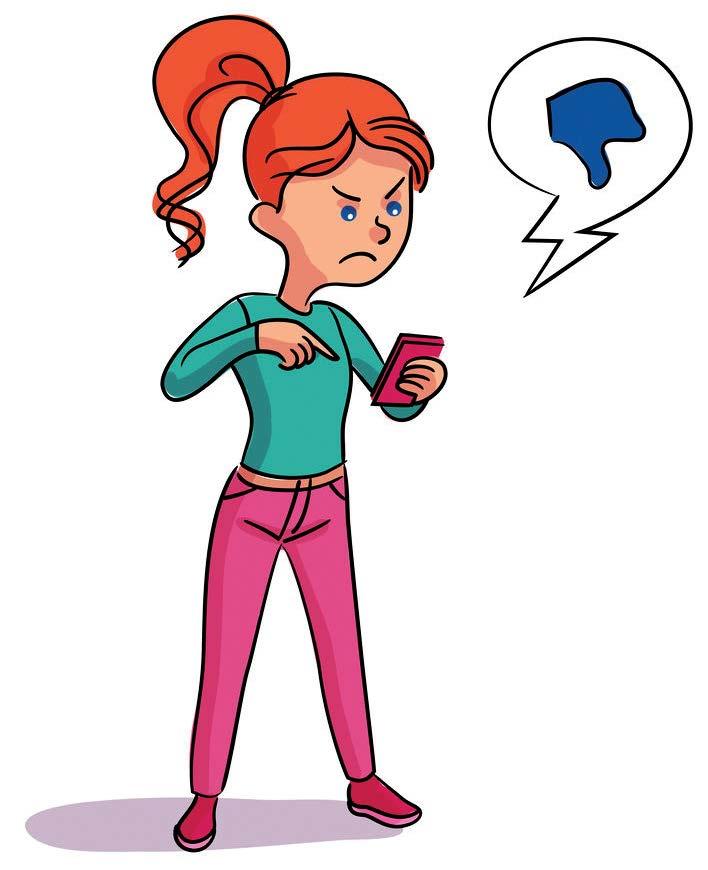
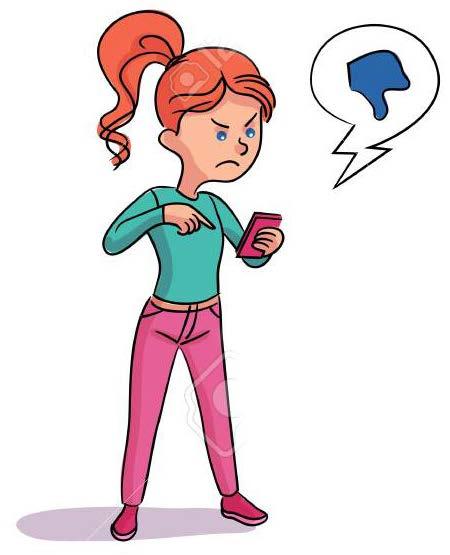
And although parents can be privy to these terms, we should eliminate them from our own vocabulary, because otherwise it’s, well, not on fleek. See what I mean?
Maybe it’s best to stick with what worked for us when we were younger. Next time our kids ask us what we thought of a recent Zoom session, let’s say it was totally tubular. And when they get upset over the amount of homework they have, reply with words that are relatable like, “Don’t have a cow.” LOL!
Shannon Pease-Severance is the assistant editor for South Florida Family Life and mother of two daughters who keep her in the lingo loop.
Join in the magic at Gaylord Palms with whimsical décor and enchanting activities throughout the resort. Participate in an interactive storytelling show featuring your favorite fairy tales, and then Spring It On with other premium amenities like our water park, spa, and signature atriums.
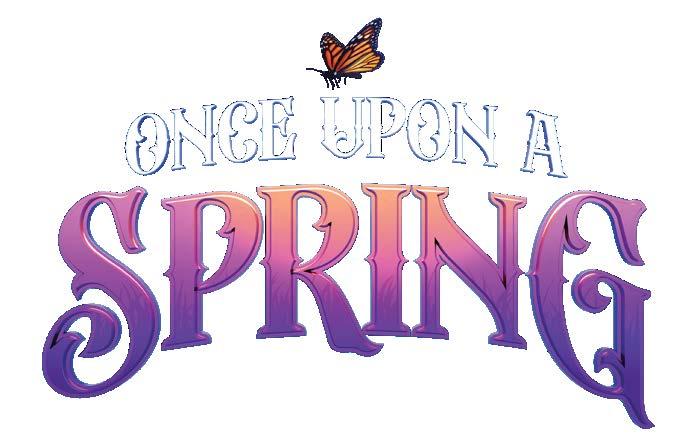

March 12th - May 16th | GaylordPalms.com
Designed with enhanced health and safety measures. Learn more at GaylordHotelsClean.com.
Walk-in Urgent Care
7 Days a Week 11 a.m. - 10 p.m.
Personalized and prompt care of minor injuries and illnesses for infants, children, adolescents and young adults under 21 years of age provided by experts in pediatric care, led by board-certified pediatric physicians.

10 Locations Throughout South Florida. Doral
Hialeah
Homestead
Miami Lakes
Miramar
Midtown
Palm Beach Gardens
Palmetto Bay
West Bird
West Kendall
nicklauschildrens.org/UrgentCare
Walk-in care only. Urgent Care Center visits are not by appointment. Care is prioritized based on acuity.